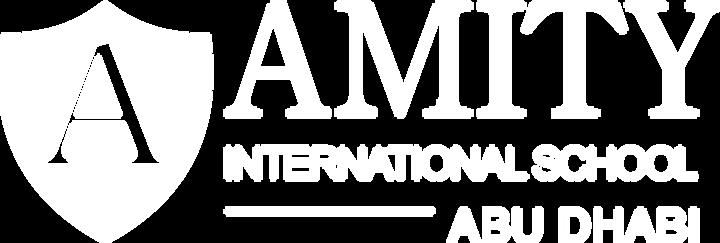






Welcome from the Head of Secondary
Advice from the Deputy Head
Academic
Advice from the Deputy Head Pastoral Geography IGCSE
German GCSE
Arabic as a First Language IGCSE
Arabic as a Second Language IGCSE
History IGCSE
Business
Careers
Mathematics
Music
Physical
Psychology
Physics
Spanish
Support
English
English
English Literature GCSE
What if I change my mind?
Welcome from the Head of Secondary
Advice from the Assistant Head of Secondary
Advice from the Head of Year 9
Commintment to Study
Equivalency Requirements
English as a First Language GCSE
English as a Second Language IGCSE
French GCSE
Geography IGCSE
German
The Curriculum Offered at Amity
The GCSE and IGCSE Curriculum
Timeline
Information and Communication
Music
Arabic
Business
Chemistry IGCSE
Welcome to the start of the GCSE journey at Amity International School. Where your choices begin to shape your future.
The General Certificate of Secondary Education (GCSE) is one of the world’s most popular qualifications. GCSEs provide our students with the perfect platform to acquire, develop and enrich the skills, knowledge and understanding needed for an exciting future. GCSEs are taught over 2 years and at the end of Year 11, students sit external examinations in all their subjects. GCSEs will be the first formal results our students will receive, and the first step on their journey to Post-16, university qualifications and their future career.
Our Curriculum


We offer a broad and balanced curriculum, ensuring the study of academic core subjects but also offering career defining and creative subjects to prepare our students for the next steps in their educational and vocational journey. We are aware that we are preparing students for future careers that do not currently exist as well as the more traditional and well-known occupations, and with that in mind, we believe that our curriculum will enable them to shape their extraordinary futures
Having studied a wide range of subjects in Years 7 and 8, it is now time for our Year 9 students to choose the subjects they would prefer to study for their GCSEs This is an exciting step in each student’s education and one for which they need to be fully informed. In this guide, you will find information about the compulsory and optional subjects As you read the information, we encourage students to choose subjects that they enjoy, and also to carefully consider which subjects they perform best in and which they may need for potential career paths.
To help in decision making we are pleased to be holding an Options Evening where we will showcase our curriculum and you will be able to speak to each department to find out more about the subject they are offering and to answer any questions. We hope that you find this booklet helpful and informative in guiding your decision making and if you have any queries, please do not hesitate to talk to us.
Mr Olly Lewis Head of Secondary
The GCSE years mark an exciting phase full of opportunities for personal growth, learning, and selfdiscovery. Embrace this stage of your education with enthusiasm, dedication, and a willingness to explore uncharted paths. Amity International School places the utmost importance on fostering resilience and prioritising our students' mental health, well-being, and happiness. These aspects lay the foundation for achieving the best academic outcomes. In an environment that emphasises high achievements, it is vital to possess resilience, a willingness to embrace failure, and the drive to improve by repeatedly trying your best to succeed. Individual
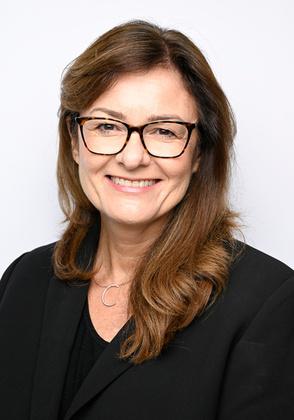
successes should be cherished and celebrated regardless of their nature or magnitude. We are incredibly proud of our exceptional Co-curricular programme, which is designed to provide students with opportunities to develop essential social, intellectual, and moral skills. Our Cocurricular activities play a pivotal role in enriching students' learning experiences. They stimulate creative thinking, enhance social and organisational skills, nurture interests and talents, and provide a well-deserved respite for students to engage in activities they genuinely enjoy. Students will improve their confidence and self-esteem by actively participating in Co-curricular activities, particularly those that resonate with their passions. In addition, research has shown that regular physical activity promotes better concentration, memory, and cognitive function, enhancing learning abilities We encourage students to step outside their comfort zones, expand their horizons, and embrace new activities that challenge and inspire them.
Engaging in Co-curricular activities not only enhances students' soft skills and personal growth but also strengthens their university applications. Being able to show a range of diverse interests and abilities beyond their academic accomplishments could be the difference to a college or University place. Furthermore, involvement in school leadership roles and student council initiatives demonstrates how students utilise their time at school and showcases their leadership potential. At Amity International School, we are committed to providing a holistic education that develops the complete student. Throughout the coming years, we will support and guide you every step of the way to help you become the kind of adult you aspire to be

Ms Catherine Logan Assistant Head of Secondary
You have reached an exciting point in your educational path! For the first time in your academic career, you have some choice in what you will study at school; these decisions are exciting and important in equal measure. Some students will find their choices challenging while others will find it simpler We advise you to choose a mixture of subjects across the curriculum that ensures you have a broad set of subjects. Choose what you enjoy and have a genuine interest in, so that you are more likely to succeed. Consider the range of skills and knowledge across a spectrum of subject areas that stands you in good stead for post-16 studies. In choosingyour GCSE subjects, here are some points to think carefully about and discuss with your family:
- What do I enjoy?
- What am I good at?


- What do I require for future A Level or BTEC choices and beyond?
- Do I have a balance of subjects that demonstrates a wide skill set?
- Have I made the most informed decisions that I can?
- Does the specification look engaging? We strongly recommend that students take a broad range of subjects to ensure a balanced curriculum that increases their options and opportunities later down the line. Many thirteen- and fourteen-year-olds have no fixed ideas as to what they want to do as a career, so it is important to be flexible with your choices. To this end, we suggest, where possible for your options, that you choose a Language, a Humanity, an Art, and a fourth free choice. We are on hand to offer as much support and guidance as is needed so please do reach out to us, speak to your subject teachers, speak through your options with your tutor, attend Options Evening with your parents, and sign up to taster classes, and of course ask questions about the prospective courses. We firmly believe that an effective education is one where we work as a partnership, so please do reach out if you need any support so that we can ensure you are on the path to success at GCSE.
Ms Lianne Coultas Head of Year 9
Choosing what to study for GCSEs can feel overwhelming, but have no fear! This guide will help you make the right choice.
Check what’s available
There are subjects you have to study, like English, maths, and science. Your optional subjects might be grouped by the school timetable.
Consider your interests and skills:
Once you know what’s on offer, ask yourself:
1.What do I like studying?
2.What am I good at?


Think about your skills and interests. If you enjoy robotics an r science might be for you. If you love other cultures and acce n language.
Figuring out your strengths can be tough. Use the Unifrog Competencies tool and talk to teachers, friends, and family for their opinions. Attend our school's Options Evening to learn more about each subject.
Think about what you want to do next:
Some level 3 qualifications, jobs, apprenticeships, and university courses require specific subjects. For example, a career in film and TV might need media studies or art. If you’re interested in sports, you might need a background in different sports.
If you know your future career, check the Unifrog Careers library for entry requirements. If you’re unsure, don’t worry! Many jobs don’t have specific subject requirements, and you can always upskill with short courses or MOOCs.
Laura Sylvester-Udoh Careers & Universities Guidance Counsellor
Students are not permitted to drop subjects. The only instances w allowed is with either more professional advice that may be in the educational review.

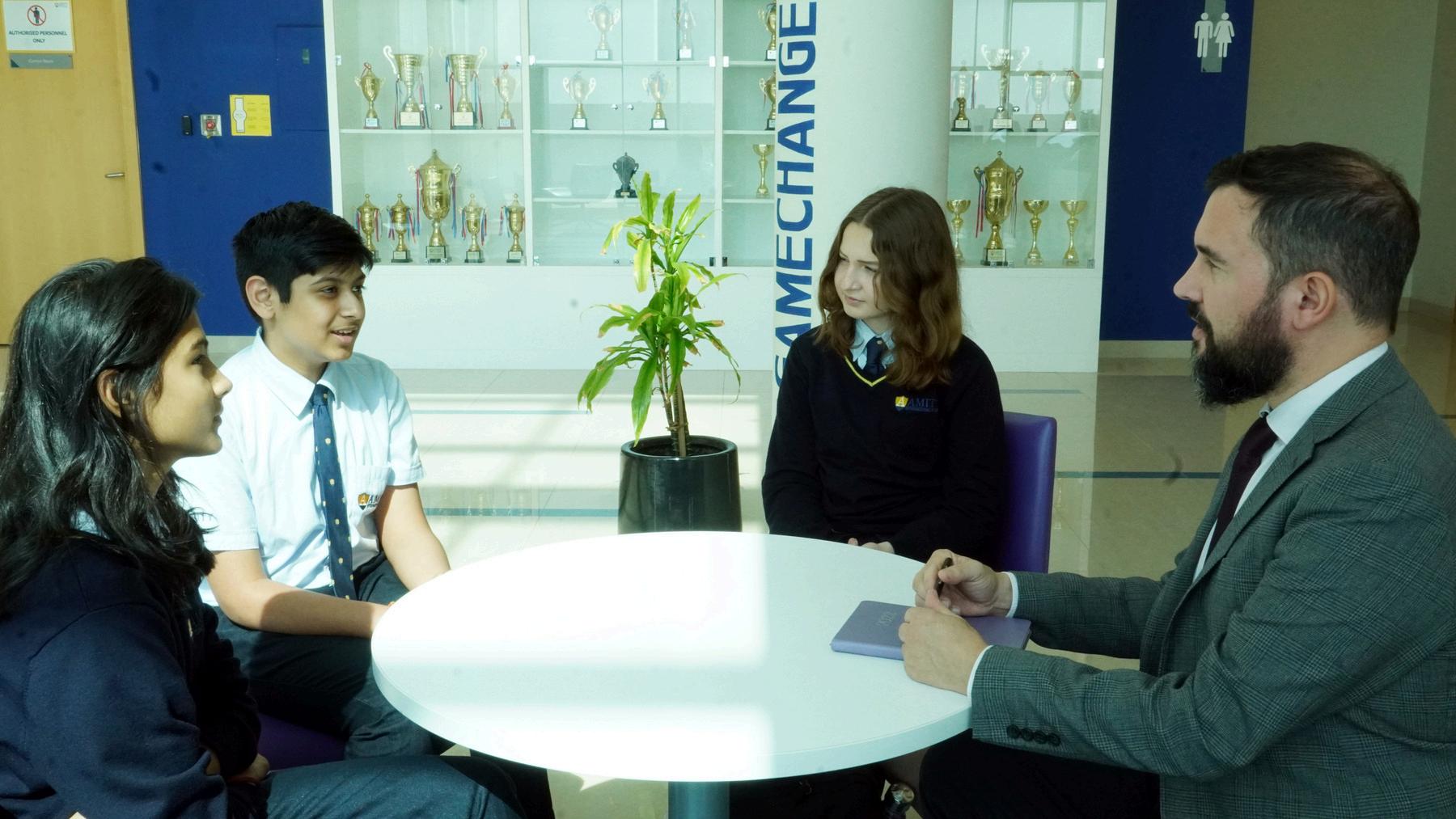
Examination fees are payable upon confirmation of the examinations being taken by the student. Parents will be invoiced by the school usually in February of Year 11. Variation in the fee structure is dependent on the nature of the course and is controlled by the examining body. There is an additional courier charge for sending the certificates safely to you, if you are not in the UAE at the time they arrive in school (usually December).
approved subjects at A*-D to attain General Level Equivalency IslamicStudiesarenotqualifyingsubjects.
4. Arab Muslim and Non-Arab Muslim students must additionally inYears10-13,andArabstudentsmustpassArabicLanguageinY
5. EmSAT tests assess students’ skills and concepts in specific s haveapassorfailmark,butsomeuniversitiesmayrequireaminim purposes.
6.HigherEducationInstitutesintheUAEaskforEquivalencyasa
All Emirati and Arab students are strongly advised to seek equiva not from Arabic-speaking countries might want to seek equivalen work in the UAE or any of the Arab Gulf Countries. If a student student will not follow courses that provide equivalency, their p signawaiverrelievingtheschoolofanyfutureliabilitytothateffe
Weurgeallfamiliestochecklocalrequirementsanduniversityreq countries, as some universities have a specific subject requireme addition, parents may wish to speak with our Careers and Counsellor.

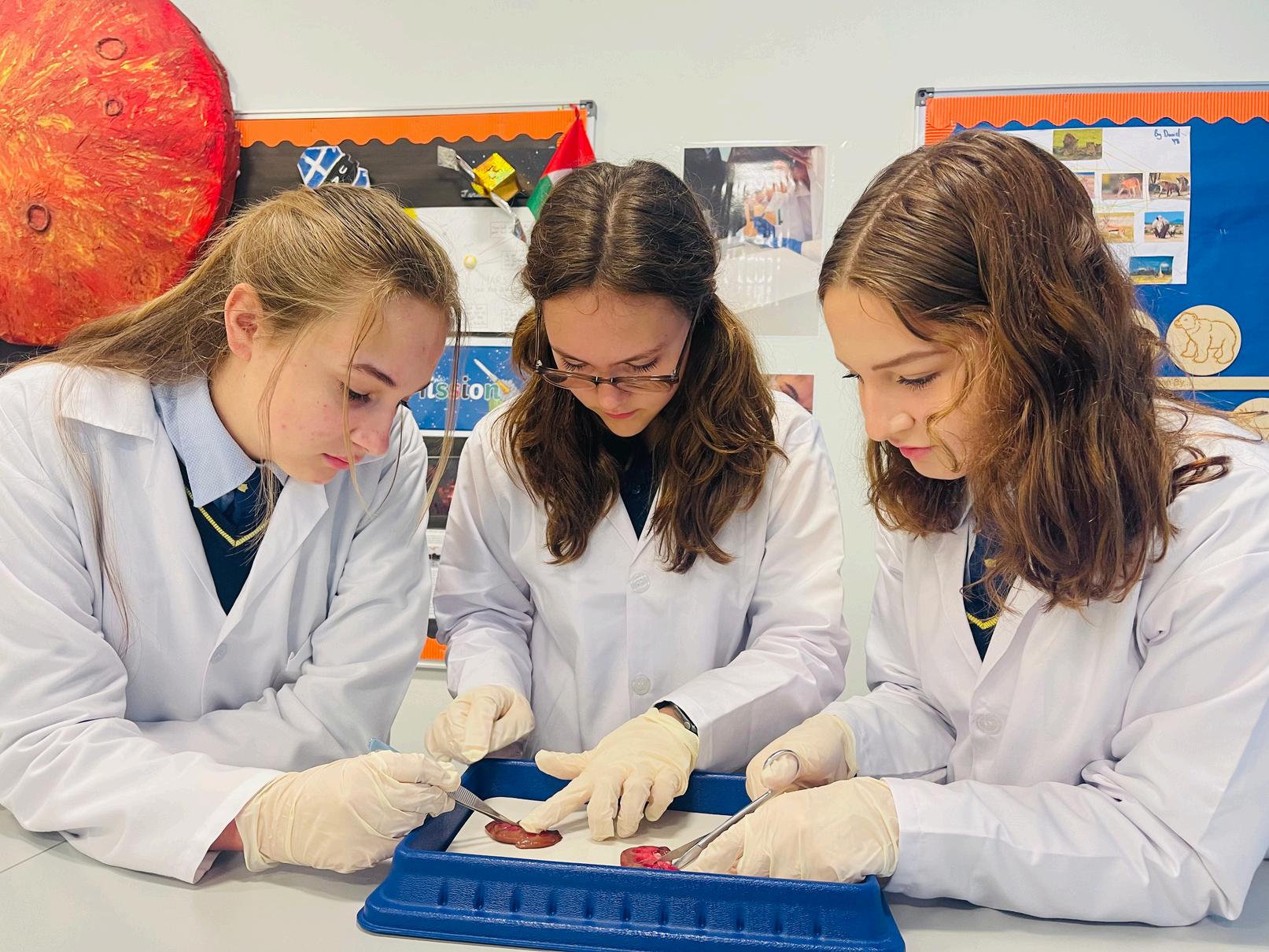
Computer Science
ICT
Business Studies
Psychology
Academic PE
There are several groups of subjects that we advise not to be tak of subject diversity, namely:
Computer Science and ICT
Fine Art and Fashion and Textiles
In the case where students wish to study similar subjects, we advis Deputy Head of Curriculum.
The General Certificate of Secondary Education (GCSE) is a British academic qualification that is used as the principle means of assessing student attainment at the end of Year 11, upon the completion of a two-year programme of study.
The International GCSEs (IGCSEs) are global qualifications that are followed by schools worldwide, including the UK. Both qualifications are rigorous in their assessment and are recognised by universities, colleges and employers throughout the world.
Almost all GCSE qualifications are now graded 9 – 1, with 9 the highest possible grade. A Grade 4 is a standard pass at GCSE, but teachers will focus on supporting all students in achieving the highest possible grades. At Amity we follow qualifications offered by the Oxford AQA, Pearson Edexcel and Cambridge International examination boards.
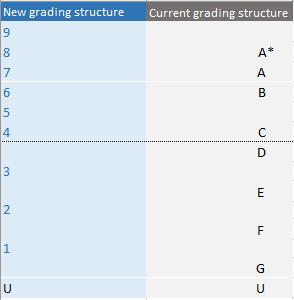
As well as providing our students with a firm grounding in the core subjects of English, Mathematics, Sciences and Arabic, our Year 10 curriculum enables students to make subject choices which either maintain breadth or specialise according to their interest, preparing them for a variety of future study pathways.

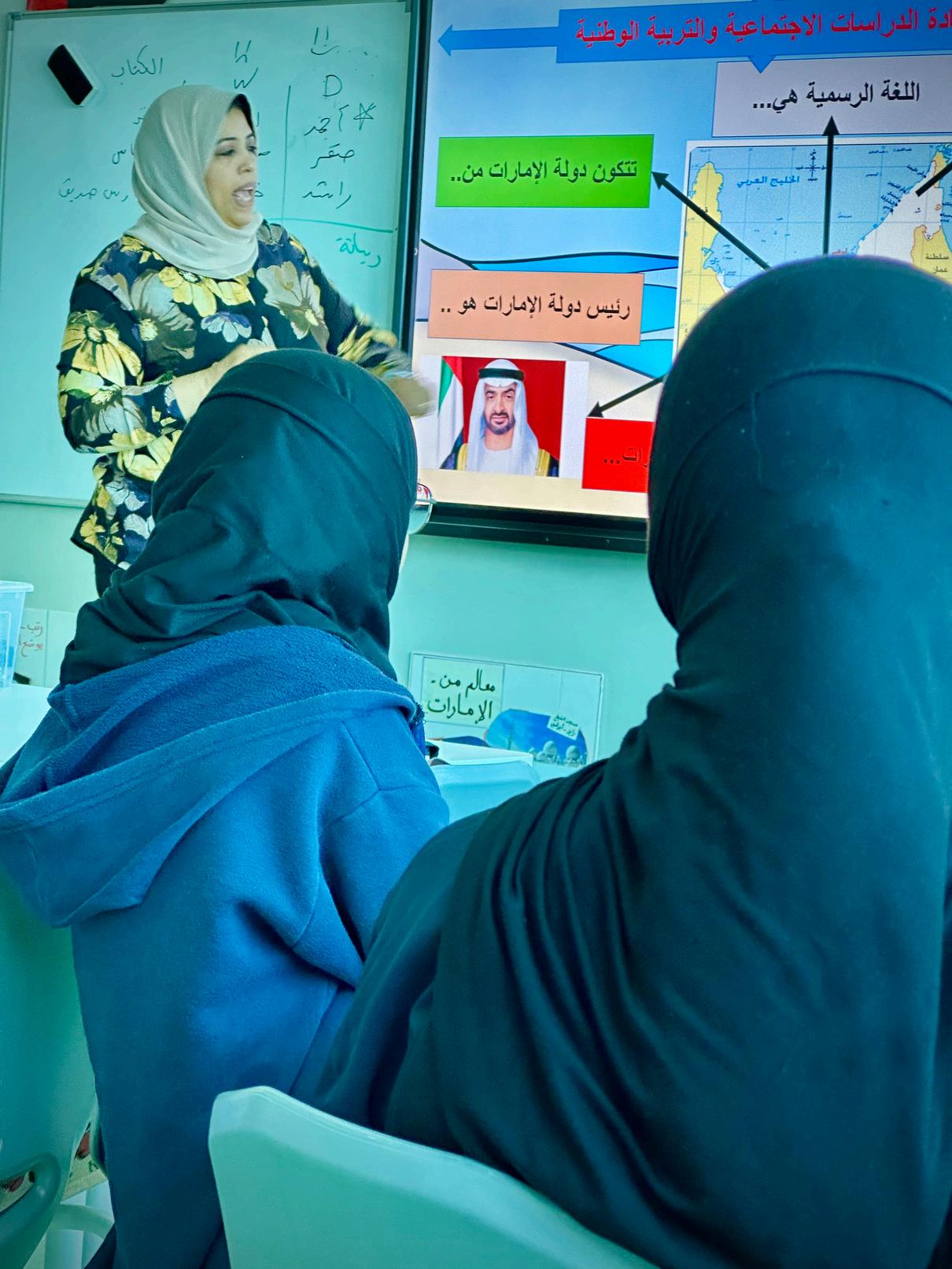
EXAM BOARD: CAMBRIDGE
SPECIFICATION CODE: 7184
SPECIFICATION LINK
"ARABIC FIRST LANGUAGE HAS BEEN A GREAT OPPORTUNITY FOR ME TO IMPROVE MY READING AND ANALYSIS AS WELL AS MY WRITTEN COMPOSITION" - HABIBA, Y11
INTRODUCTION support students through the Cambridge IGCSE Arabic as a First Languag The related workbook contains additional activities that help build master language and culture.

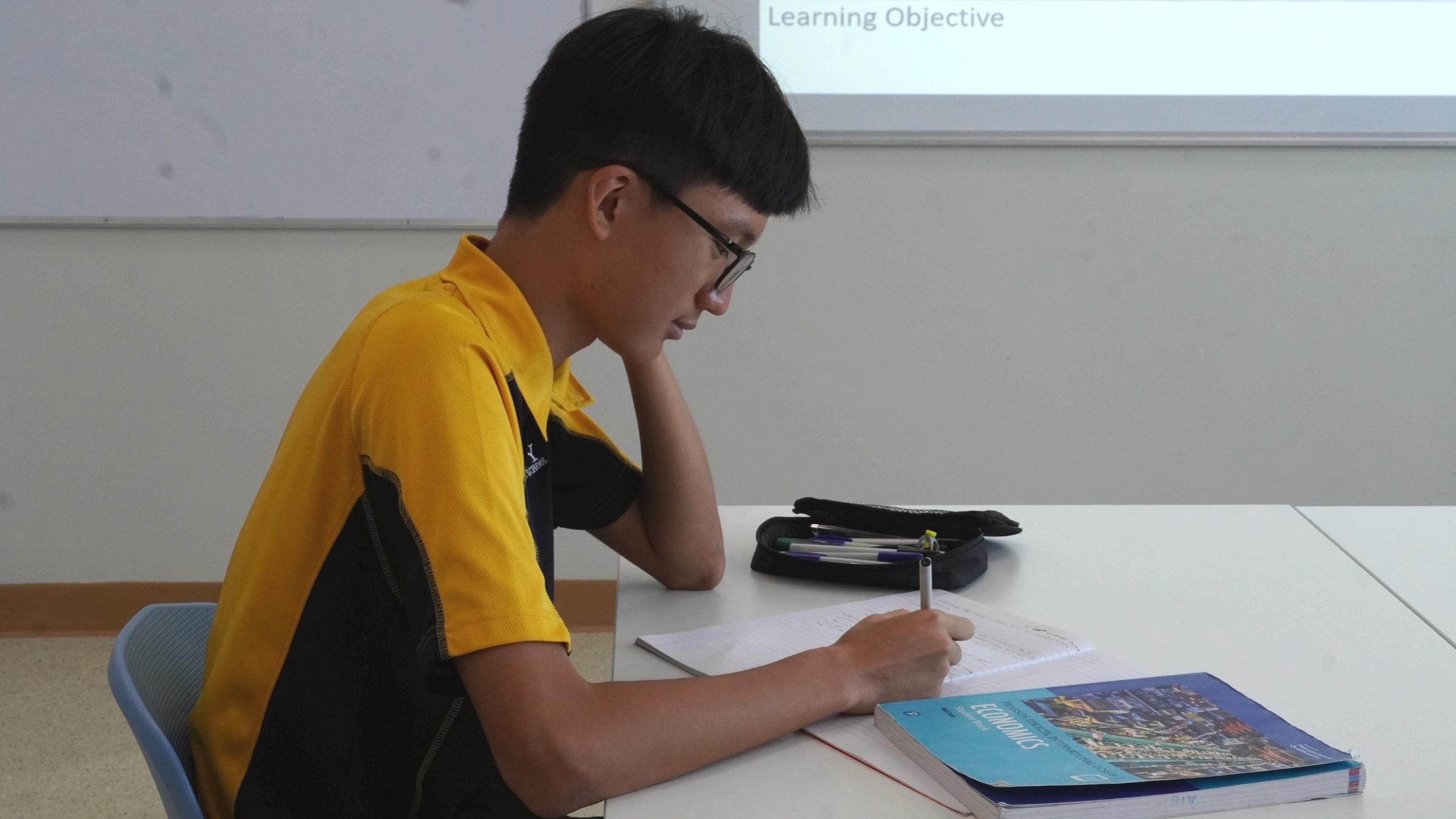
EXAM BOARD: CAMBRIDGE
SPECIFICATION CODE: 0544
GRADING: A*-G
SPECIFICATION LINK
“STUDYING ARABIC LANGUAGE CONNECTS ME TO THE RICH CULTURE OF THE MIDDLE EAST AND OPENS DOORS FOR MORE FUTURE CAREERS AT THE REGION” - MARAM, YR13
Paper 4 Writing: This paper provides 25% of the
taken at the end of Year 11 and assessed externally. Papers 1 and 3 are taken in one examination session and Pape session. Paper 2 is taken with the teacher prior to the examina papers.
The focus of the writing and speaking units will be chosen by the A consultation with the student and will relate to the following them local area, holiday and travel, school, future aspirations, study and global dimension.Year 10 starts with an introduction to Arabic GC revision of basic language items such as numbers, months, days an including family, descriptions and home. Towards the end of the ac will be starting to complete examination papers in Listening and R examination technique and core examination vocabulary.
Encourage students to further extend the learning by thinking topics and try to express their point of views by using dictiona to find the suitable word.
People with language skills and knowledge are highly thought of in They stand out as talented and successful people, with broad and e Taking this GCSE means you will:
·Be able to study AS and A Level Arabic courses,
·Add an extra dimension to your personal skills profile which will im reads your CV.
·Be in a stronger position to get a job in a company with internatio employability if you would like to work abroad.

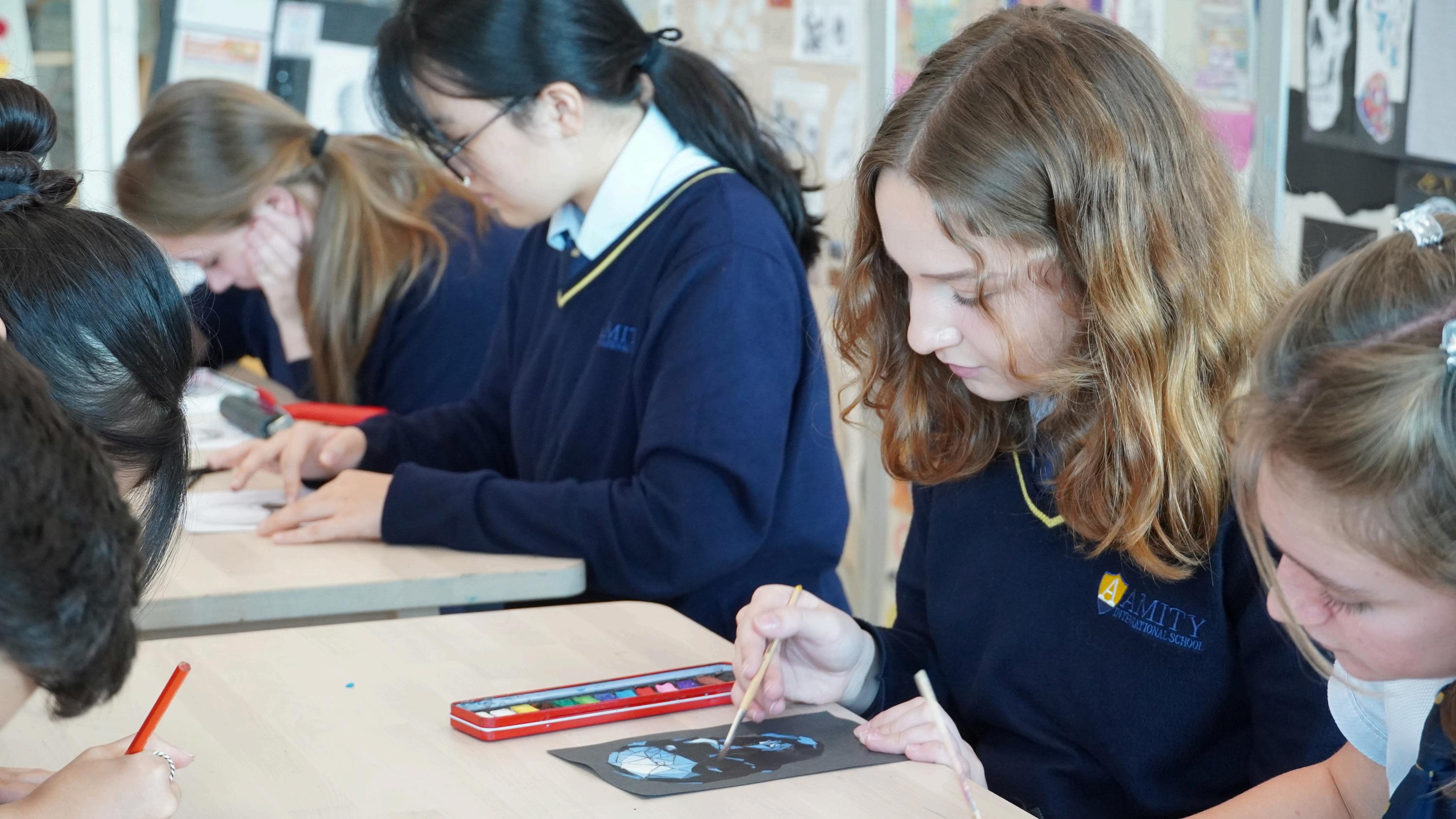
EXAM BOARD: EDEXCEL PEARSON
SPECIFICATION CODE: 4FA1 & 4GC1
SPECIFICATION LINK
“ART REQUIRES COMMITMENT, BUT IT IS A FLEXIBLE SUBJECT THAT ALLOWS YOU TO EXPLORE YOUR OWN INTERESTS AND DEVELOP YOUR CREATIVE THINKING AND RESEARCH SKILLS” - MAYLEEN, Y11
develop creative skills, through learning to use imaginative & i exploring and creating images and artefacts that are original a become confident in taking risks and learning from their mista experimenting with ideas, materials, tools and techniques, develop competence, with increasing independence, refining an proposals, personal outcomes or solutions, actively engage with a broad range of media, materials and tec when appropriate, traditional and new media and technologies develop cultural knowledge, understanding and application of media and technologies in historical and contemporary contex cultures,
develop an understanding of the different roles, functions, aud of art, craft and design practice, develop critical understanding through investigative, analytica interpretive, practical, technical and expressive skills to develo independent students and as critical and reflective thinkers wi develop personal attributes including self-confidence, resilienc discipline and commitment.
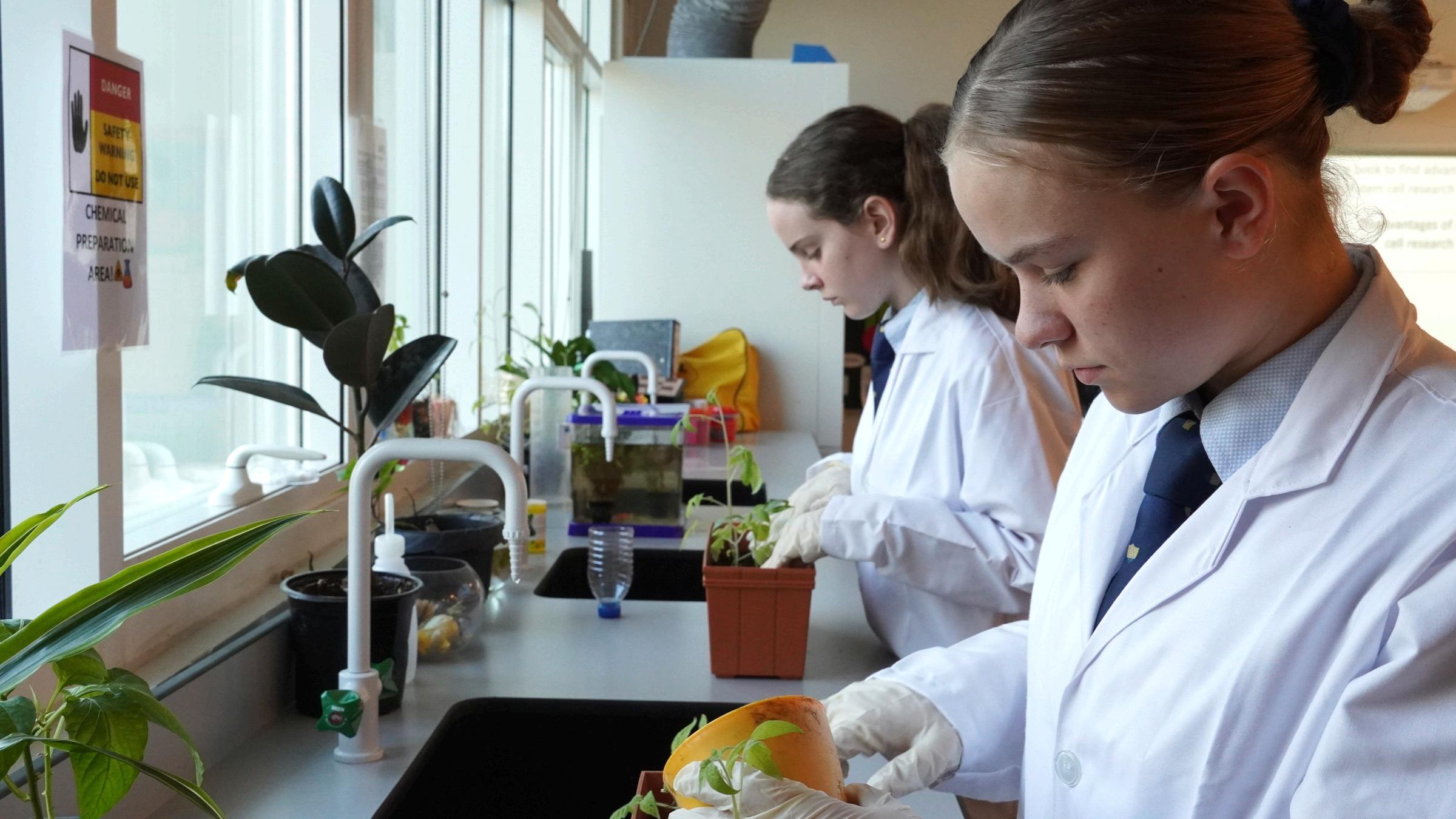

EXAM BOARD: OXFORD AQA
SPECIFICATION CODE: 9201
SPECIFICATION LINK
“I LOVE BIOLOGY BECAUSE I CAN LEARN ABOUT THE HUMAN BODY MORE THOROUGHLY AND INTERPRET THE ADAPTATIONS OF ALL ANIMALS” –RUSANDI, Y11
Cell structure and organisation
Cell division and differentiation
Human Biology – breathing
Human Biology – Circulation
Human Biology – Digestion
Nervous coordination and behaviour
Homeostasis
Defending ourselves against disease
Plants as organisms
Variation and inheritance
Genetic manipulation
Evolution, adaptation and interdependence
Ecology
Human population and growth

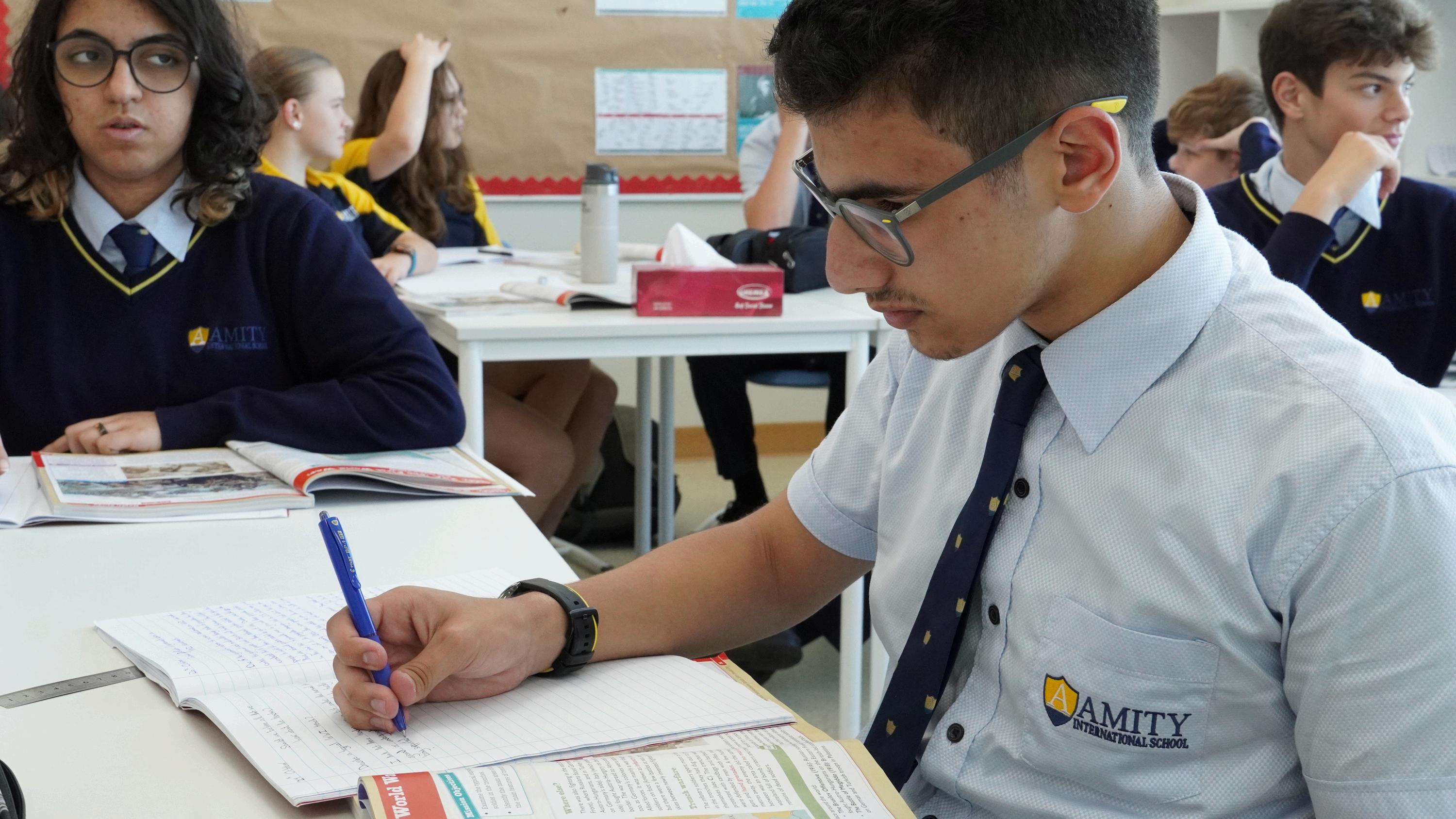
EXAM BOARD: PEARSON EDEXCEL
SPECIFICATION CODE: 1BS0
SPECIFICATION LINK
“BUSINESS STUDIES IS A SUBJECT THAT BROADENS MY VIEWS ON VARIOUS ASPECTS OF A BUSINESS. IN CLASS WE OFTEN COLLABORATE WITH OTHERS TO COME UP WITH DIFFERENT SOLUTIONS FOR A QUESTION; THIS LETS US BE CREATIVE AND MAKES LEARNING FUN”BHAVINI, Y11
Making decisions and developing persuasive arguments
Creative and practical problem solving
Understanding data, finance, and communication. It’s also a great step in preparing you for further and higher educa BTEC courses. A GCSE Business course could help prepare you for and help you to gain an understanding of what is involved in a bus such as Accountancy, Banking, Law, Marketing, and many others
The qualification will be assessed in two equally weighted exam pa coursework.
Multiple choice, calculation, short-answer and Extended-writing questions.
There are three sections in the paper Each section is ramped, starting with multiple choice questions, moving to short answer questions and ending with extended writing. Sections B and C are based on real life, relevant business contexts, and examples
Multiple choice, calculation, short-answer and Extended-writing questions.
There are three sections in the paper. Each section is ramped, starting with multiple choice questions, moving to short answer questions and ending with extended writing Sections B and C are based on real life, relevant business contexts, and examples.
Topic 1.1 Enterprise and entrepreneurship
Topic 1.2 Spotting a business opportunity
Topic 1.3 Putting a business idea into practice
Topic 1 4 Making the business effective
Topic 1.5 Understanding external influences on business
Topic 2.1 Growing the business
Topic 2.2 Making marketing decisions
Topic 2 3 Making operational decisions
Topic 2.4 Making financial decisions
Topic 2.5 Making human resource decisions


EXAM BOARD: OXFORD AQA
SPECIFICATION CODE: 9202
SPECIFICATION LINK
“I ENJOY CHEMISTRY BECAUSE I LOVE FINDING OUT ABOUT WHY THINGS AROUND US ARE THE WAY THEY ARE AND INVESTIGATING THEM BY CARRYING OUT PRACTICAL EXPERIMENTS” - ELANA, Y11
Atomic structure
Atomic structure and bonding
The periodic table
Metals
Electrolysis
Chemical analysis
Acids, bases and salts
Rates of reaction
Extent of reaction
Energy changes in chemical reactions
Carbon compounds as fuels
Other products from crude oil
Alcohols, carboxylic acids and esters
Quantitative Chemistry
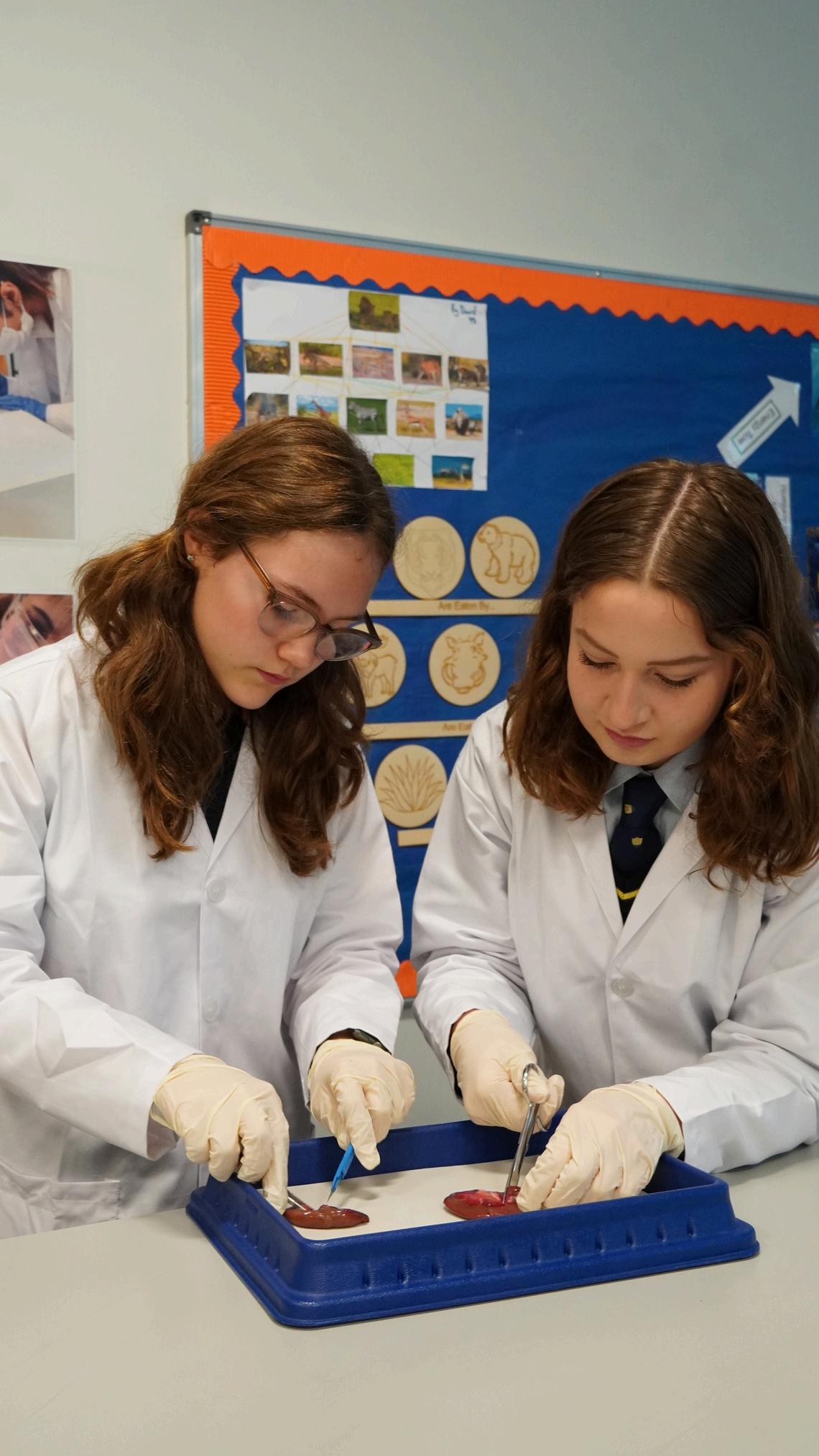

EXAM BOARD: OXFORD AQA
SPECIFICATION CODE: COMBINED SCIENCE 9204 SPECIFICATION LINK
"I LOVE THAT IN COMBINED SCIENCE WE GET TO LEARN ALL THREE SCIENCES AND COVER THINGS WE WOULDN'T KNOW ABOUT FROM REAL LIFE. FROM LEARNING ABOUT THE PERIODIC TABLE AND HOW ATOMS MAKE UP EVERYTHING IN CHEMISTRY, TO FORCES AND ENERGY IN PHYSICS AND OSMOSIS IN BIOLOGY - IT'S ALL FASCINATING!"MALAK, Y11
1Biology
2Chemistry
3Physics
Cell structure and organisation
Cell division and differentiation
Human Biology –breathing
Human Biology –Circulation
Human Biology –Digestion
Nervous coordination and behaviour
Homeostasis
Defending ourselves against disease
Plants as organisms
Variation and inheritance
Genetic manipulation
Evolution, adaptation and interdependence
Ecology
Atomic structure
Structure and bonding
The periodic table
Metals
Electrolysis
Chemical analysis
Acids, bases and salts
Quantitative chemistry
Rates of reaction
Energy changes in chemical reactions
Carbon compounds as fuels
Other products from crude oil
Alcohols and carboxylic acids
Resultant forces
Forces and motion
Forces and energy
Energy resources
General properties of waves
Electromagnetic waves
Sound
Kinetic theory
Energy transfer by heating
Electricity
Magnetism and electromagnetism
Household electricity
Nuclear physics
All students will be provided with a GCSE Biology, Chemistry and P textbooks contains all the content required for the course, practica and practice questions The Oxford AQA website includes the spec examination papers and mark schemes.
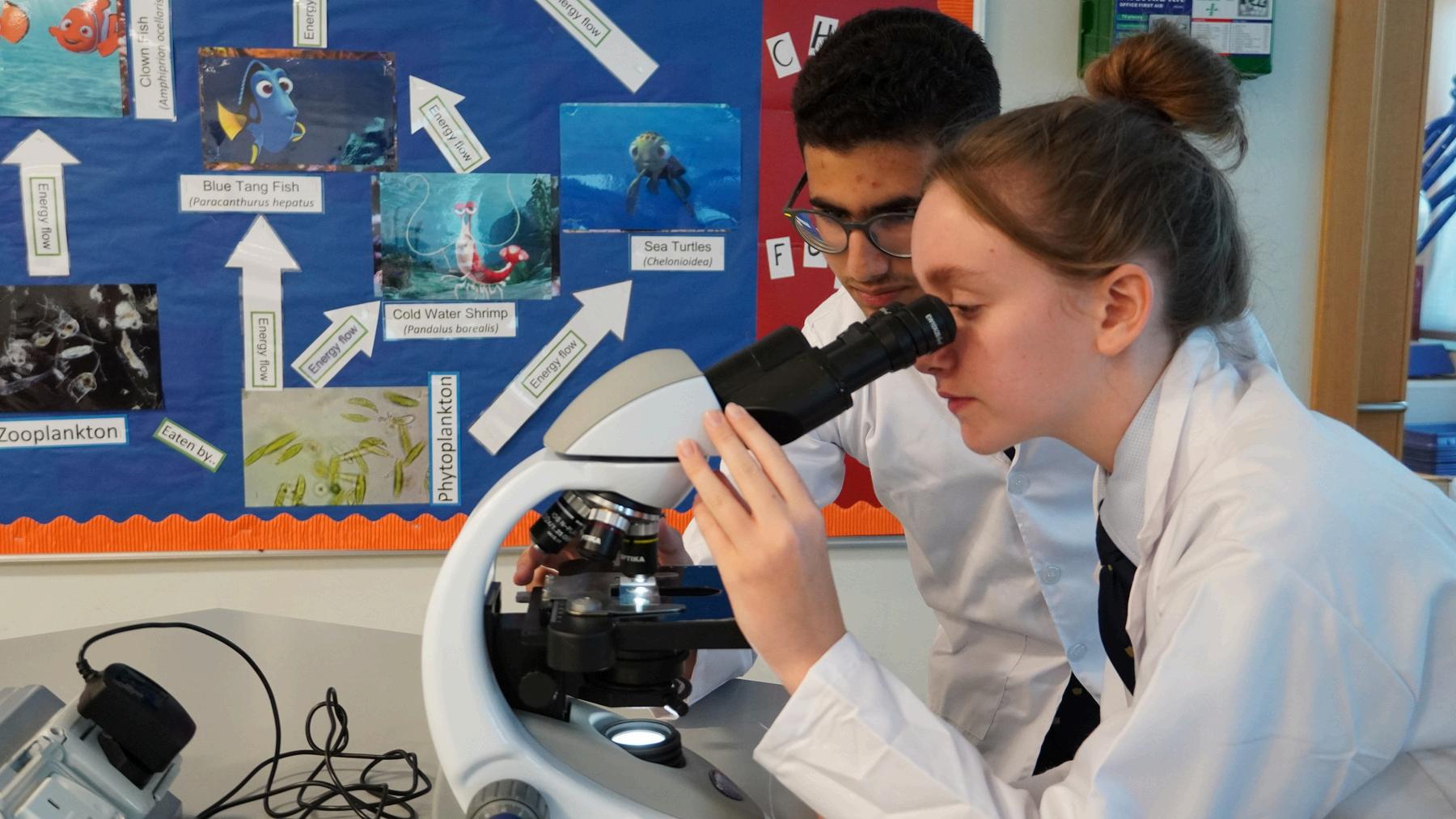


EXAM BOARD: CAMBRIDGE SPECIFICATION CODE: 0984 SPECIFICATION LINK
“IT’S AMAZING TO BE ABLE TO CREATE BASICALLY WHATEVER YOU WANT THROUGH PROGRAMMING. YOU CAN JUST LET YOU IMAGINATION FLOW WHILE CREATING” - AARUSH, Y11
www.bbc.com/bitesize/subjects/z34k7ty www.teach-ict.com/gcse computing.html www.csunplugged.org
www computer howstuffworks com www.cs4fn.org
www.computingatschool.org.uk www.quizlet.com/subject/computing www.mrfraser.org/resources www.igcseict.info


EXAM BOARD: EDEXCEL
SPECIFICATION CODE: 1DT0
SPECIFICATION LINK
“DT ALLOWS ME TO ESCAPE INTO A IMAGINATIVE WORLD WHERE I CAN
EXPLORE MY CREATIVITY WHILST DEVELOPING AN UNDERSTANDING OF DIFFERENT MATERIALS AND HOW PRODUCTS WORK” - CAITLYN, Y10
Component 1
Written examination: 1 hour 45 minutes
50% of the qualification 100 marks
Section A is assessed on the core content
Section B is assessed on chosen materials category
Component 2
Non-examined assessment 50% of the qualification 100 marks
There are four parts to the assessment:
1 – Investigate
2 – Design
3 – Make
4 – Evaluate
Pathway 2-1DT0/1F Product Design
leanersfortheirfuturewithinarapidlychangingtechnologicalsoc withkeytransferableskills.DesignandTechnologycansetyouup varietyofindustriessuchasfashion,engineering,architecture,and technology.ItisanidealpreparationforALevelDesignandTechn FashionandTextiles,FurtherEducationDiplomaHNCFoundation EducationDiplomainFashionandTextilesFoundationDegree,Ap and3
WhatothersubjectsgowithDesignandTechnology DesignandTechnologygoeswellwithArt,butalsoScienceandTe includingPhysics,Maths,ChemistryandIT.Whenitcomestothe knowledgeofhowphysicalandchemicalprocessesworkcancome designingdifferentproducts.
GCSEDesignandTechnology-Edexcel-BBCBitesizeThisse brokendownintotheCoreKnowledgeandTechnicalsections. resourcesforself-testing. http://www.technologystudent.com/Anexcellentrevisionres oftheD&TCurriculum.Itincludesknowledgesections,exercis examinationquestions.
FreeHomework&RevisionforALevel,GCSE,KS3&KS2(sen learningalgorithmsaretheretomakeyouremembertopicsbe questionwrong,theywillshowyouthecontentagainbutina EdexcelGCSE(9-1)DesignandTechnologyStudentBook-Pe 13:978-1292184586


EXAM BOARD: CAMBRIDGE INTERNATIONAL EXAMINATIONS
SPECIFICATION CODE: 0994
SPECIFICATION LINK
“DRAMA IS A REALLY EXCITING SUBJECT AND IS A WAY TO EXPRESS YOURSELF. IN DRAMA YOU HAVE FREEDOM OF INTERPRETATION; THERE ARE NO RESTRICTIONS TO YOUR IMAGINATION” - SALMA, Y11
The course gives students a secure subject knowledge, drawing on considering the impact of social, cultural and historical context and interpretations of the effect of design, props, costume and space.
The IGCSE Drama course has as its core the key aim of teaching pu speaking and acting techniques; these will make them confident ac them to carry forward the important skills of public speaking and c into their future lives and careers.
Drama is an exciting, creative and challenging course for young act During the course, pupils will learn how to use their voice, facial ex physicality to create character and engage with an audience. They devised theatre techniques, physical theatre and script work and th
Dramastudentswill: understand key practical drama concepts such as: structure an and role; dialogue; physicality; pacing, contrast and dynamics; t awareness and proxemics understand the stylistic conventions associated with different of view of actor, director or designer demonstrate understanding of the ways choices made by acto designers can affect performances and audience responses understand dramatic terms and how to use them when writing understand and use appropriate technical terminology.
Paper 2
Performance of an extract from scripted play Monologue Group scripted Devised Group performance of original material from a stimulus (practical)
period or a particular company or group of practitioners. A range o These include: abstract, devising, didactic, dramatic irony, hot seat of the expert, melodrama, mime, narration, re-enactment, represen the wall, role reversal, simulations, sound tracking, still image, style playwrights, and thought tracking. Students will investigate ways in which performers and designers c to an audience through the exploration of a range of stage and per appropriate drama terminology and how plays are constructed and study of detailed script work.
Furthermore, students will understand and enjoy drama by develop skills, both individually and in groups. They will understand the role designer in creating a piece of theatre and consider ways in which be communicated to an audience. They will consider the performan and other dramatic stimuli and devising dramatic material of their
Drama is by its nature a practical subject Drama students will pur model which allows them to develop their performance skills within framework outlined below. Practical work will develop both group relation to extended extracts from plays, other stimuli and dramat own devising.
In Drama, the focus is on the staging of plays rather than the stud plays will be approached in this spirit.



EXAM BOARD: CAMBRIDGE
SPECIFICATION CODE: 0990
SPECIFICATION LINK
“ENGLISH ALLOWS ME TO EXPRESS MYSELF AND UNDERSTAND DIFFERENT PERSPECTIVES” – SAMI ADAM, Y11
AqualificationinEnglishLanguageisbroadandversatile.Thequalificationi theworldandcanthereforeleadtoawidevarietyofcareerpaths.EnglishL studenttoexcelinallothersubjectsandisthebasisofaprofessionalskillse Englishlearnstoresearch,analyseandinterpretinformation.Theyareenco andcreativewhileexploringthemanyculturesoftheworld,thusgivingthem opportunityintoday’sjobandeducationmarket.
Furthermore,thissubjectservesasexcellentpreparationforASandALeve EnglishLiterature(orindeedanyessay-basedsubject),aswellasgivingstud awidevarietyofliteraturethatwillstaywiththemforlife.

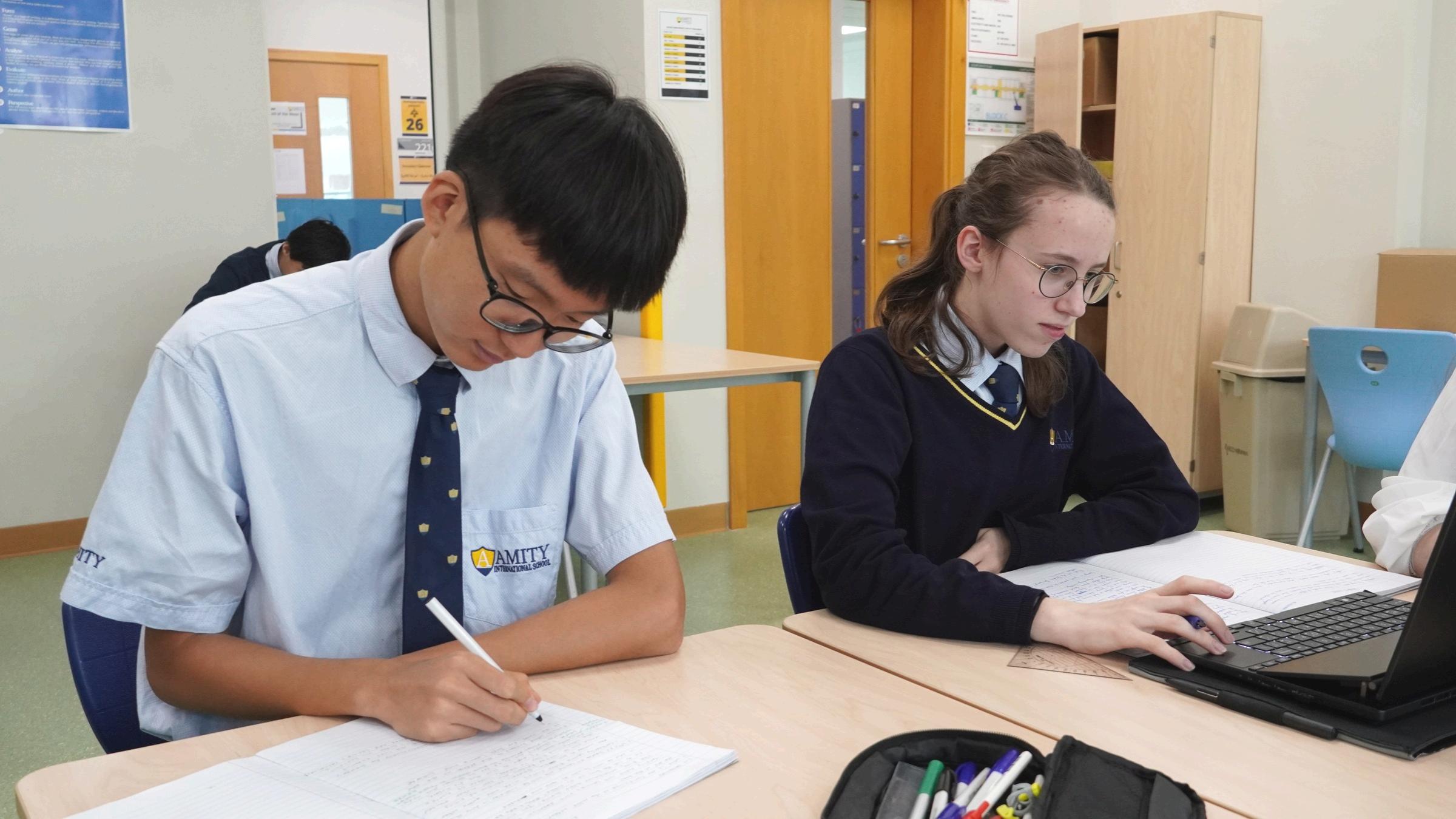
EXAM BOARD: OXFORD AQA
SPECIFICATION CODE: 9280
SPECIFICATION LINK
"IGCSE ENGLISH AS A SECOND LANGUAGE HELPS ME TO IMPROVE MY COMMUNICATION SKILLS IN SPEAKING AND WRITING"MOHAMED, Y11
What’s assessed: Understanding and responding to different types of writ
How it’s assessed: Written exam: 1 hour 15 minutes, 60 marks. 30% of IG
Questions: Short answer questions and multiple-choice questions in respo passages – 60 marks.
What’s assessed: Understanding and responding to different types of spok
How it’s assessed: Written exam: 45 minutes, 40 marks. 20% of IGCSE as
Questions: Students will be asked to listen to and answer questions on a r – 40 marks. (Each exam includes 5 minutes reading time of the question p listening stimulus is played.)
Questions:
Photocard–15marks(3–4minutes)
Generalconversation–25marks(6–7minutes)
Audiorecordedbyteacherandmarkedbyexaminer
Supportingmaterial
Previousexampapersareavailable,asisanofficialcoursebookfro



EXAM BOARD: PEARSON EDEXCEL
SPECIFICATION CODE: 4ET1
SPECIFICATION LINK
“ENGLISH LITERATURE TEACHES ME TO ANALYSE AND EVALUATE COMPLEX IDEAS, AND TO SEE THE WORLD THROUGH THE EYES OF THE AUTHOR” – JODI, Y11
Section C – Modern Prose: one 40-mark essay question from a choice set texts.
The total number of marks available is 90; the assessment duration is
Closed book: texts are not allowed in the examination. However, stude with the anthology poems in the examination.
Coursework:ModernDramaandLiteraryHeritageTexts Contentsummary
One modern drama text from the list of set texts
One literary heritage text from the list of set texts
Develop skills to analyse how language, form, structure and contextua create meaning and effect.
Develop skills to maintain a critical style and informed personal respo
There is much to remember during this course; perhaps most impo that students will be continuously assessed throughout the two ye exams for the IGCSE carry more weighting, nearly every half-term assessment which will enable the tracking of progress on the Engli grade. Moreover, as units of study and lessons are taught with a sk mind, success on the final exams will be dependent on the applicat make over the two years. Coursework grades will be available when As always, reading suitable material should be a natural accompan will develop numerous skills necessary for success at IGCSE. Stude read other texts beyond the exam assessed ones.
Parents who read the selected texts would also be supporting thei of issues, themes and ideas at home would be an invaluable stimul thinking.
English Language and English Literature are vitally important in th child as an analytical, intelligent and insightful thinker, writer and s determination in this course will demonstrably affect achievement spanning Years 10 and 11 - and beyond. There are opportunities for students to continue their studies at A Language and Literature. English Literature Level is especially well admissions teams, acting as a gateway to the Law, Philosophy and subjects.
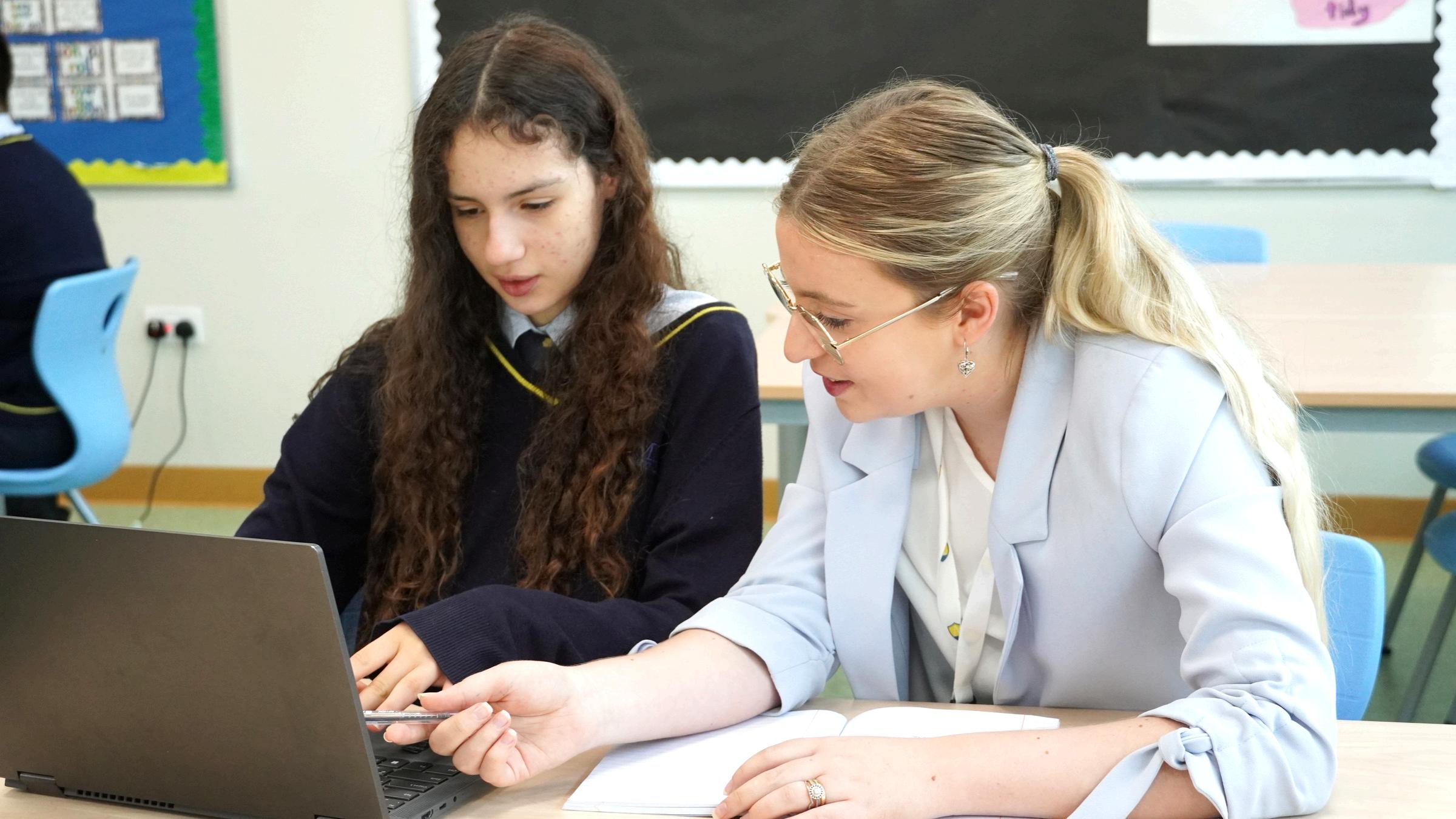

EXAM BOARD: PEARSON EDEXCEL
SPECIFICATION CODE: 4FR1
SPECIFICATION LINK GRADED: 9-1
“FRENCH GCSE IS A WONDERFUL SUBJECT TO STUDY AS IT DOES NOT ONLY TEACH YOU THE LANGUAGE BUT ALSO THE FASCINATING CULTURE OF FRANCE. IT IS INTERESTING AND TRULY A UNIQUE SUBJECT UNLIKE ANY OTHER” - JUDY, Y11
TheGCSEquestionswillbesetincommoncontexts,addressinga contemporaryandculturalthemes.Therewillbefivethemes,each topics Thefivethemesare: identityandculture, localarea,holidayandtravel, school, futureaspirations,studyandwork, internationalandglobaldimension.
Extendedvocabularyandgrammarareintroducedthroughoutthe studentstoreachtheirownlinguisticpotential Awiderangeofgr linewiththeGCSEspecificationrequirements.
Acoretextbookisprovidedbythedepartmentbutissupplemente otherresources AsmallEnglish-French/French-Englishdictiona homeuse.Studentsareencouragedtouseinternetresourcesinor WritingandSpeakingworkandtoenhancetheirReadingandListe
Manywebsitesareavailableforstudentstouseindependentlyand sitessuchasYouTubeofferahugerangeoflanguagelearningres paidappsarealsoavailable.Thefollowingarerecommendedforbu vocabulary:
www.quizlet.com(Anexcellentvocabularybuilder) www.wordreference.com(Anonlinedictionary) www.funwithlanguages.vacau.com(avastrangeofinteractive practiseGCSEvocabulary&grammar)
add an extra dimension to your personal skills profile which
reads your CV; be in a stronger position to get a job in companies with interna employability if you would like to work abroad; learn a language that you will enjoy using for leisure, travel an
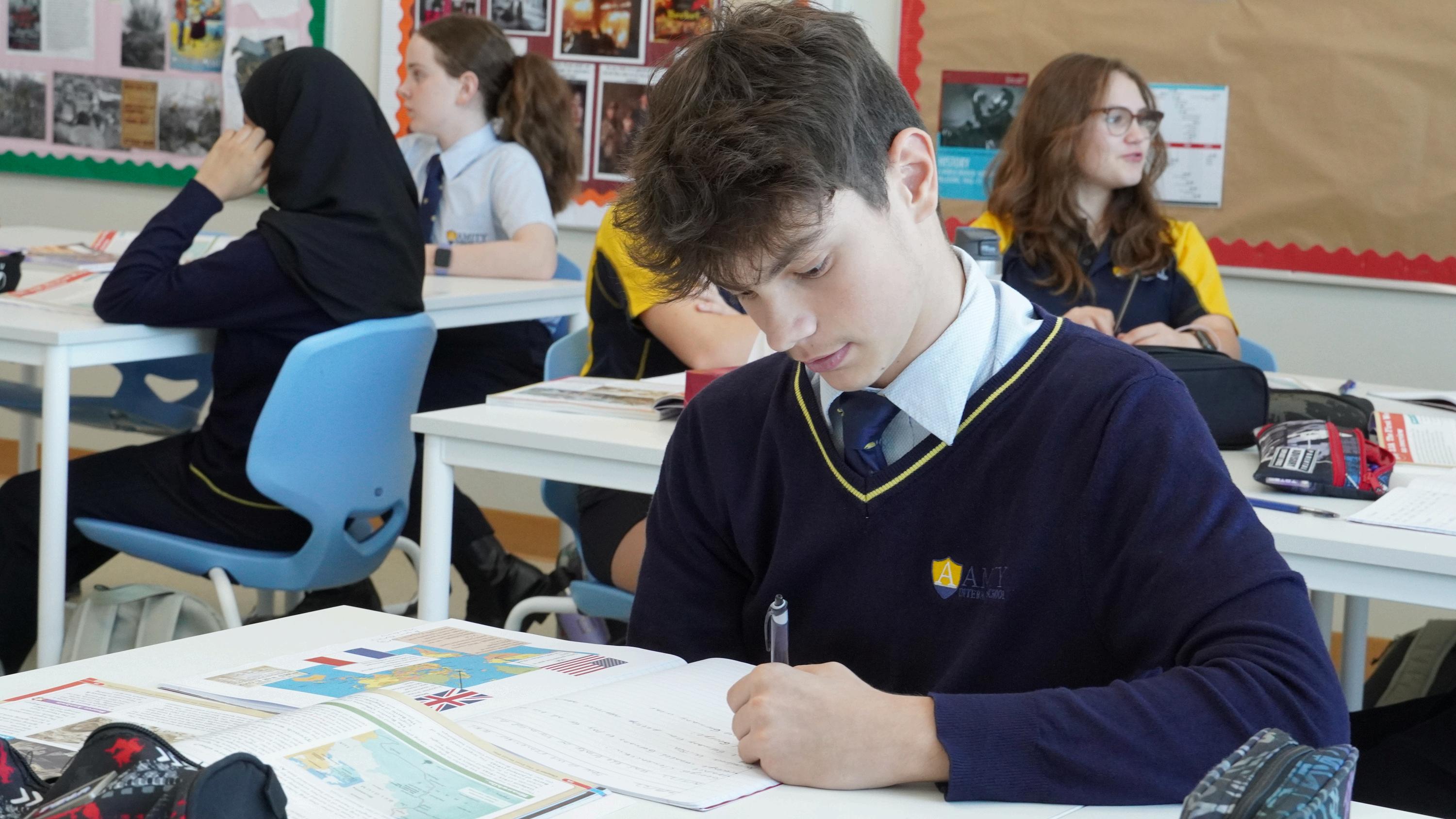
Forms of Assessment:
Geographerscan:
• handledata,
• askquestionsandfindanswers,
• makedecisionsaboutanissue,
• organisethemselves,
• thinkcreativelyandindependently.
Duringthecourse,thestudentswill:
• activelyengageintheprocessofGeographytodevelopaseffe learners,andascriticalandreflectivethinkerswithenquiringmind
• appreciatethedifferencesandsimilaritiesinpeople’sviewsof environment,societiesandcultures,
• developandapplytheirlearningtotherealworldthroughfield theclassroomlearning.
Year 10
River Landscapes
Coastal Landscapes
Urban Environmnets
Year 11
Economic Activity and Energy Fieldwork
Global Issues: Fragile Environments and Climate Change
Throughout the IGCSE Geography course, students will develop a range of geographical and transferable skills, including quantitative skills that will stand them in good stead for future study in this subject as well as many others. Through the dynamic physical geography unit, students will learn about topics including ecosystems, coastal and hazardous environments. Human geography topics include economic development, urban opportunities and challenges along with changes in populations and migration. The course, which provides a valuable opportunity to undertake a geographical investigation involving fieldwork and research requires students to engage with the world around them; in return, it encourages inquiring minds, encouraging students to become informed, and creative thinkers.
www.bbc.co.uk/schools/gcsebitesize/geog raphy
www.rgs.org www.geographyinthenews.org
www.georesources.co.uk www.geographyallthway.com www.nationalgeographic.co.uk www.bbc.co.uk/news/education


EXAM BOARD: PEARSON EDEXCEL
SPECIFICATION CODE: 4GN1
SPECIFICATION LINK
“I REALLY WANT TO TRAVEL AND TO COMMUNICATE WITH PEOPLE, WITHOUT THERE BEING A LANGUAGE BARRIER. I FIND IT INTERESTING COMPARING GERMAN TO MY OWN LANGUAGE AND IT IS GREAT TO LEARN ABOUT THE DIFFERENCES AND SIMILARITIES BETWEEN CULTURES”ABDELRAHMEN, Y11
Relevant contemporary and cultural themes are organised into five identity and culture, local area, holiday and travel, school, future aspirations, study and work, international and global dimension.
Students will take separate assessments in the four skills of Listening, Reading, Speaking and Writing Each of these will be formal assessments sat at the end of Year 11 and each examination represents 25 % of the final GCSE German grade.
also access a range of past/specimen papers from other Board Watch
Language skills and knowledge are highly thought of in the mo can speak other languages stand out as talented and successfu and exciting horizons. Taking GCSE German means you will: be able to study the A Level German course; add an extra dimension to your personal skills profile which wi reads your CV; be in a stronger position to get a job in companies with interna employability if you would like to work abroad; learn a language that you will enjoy using for leisure, travel an

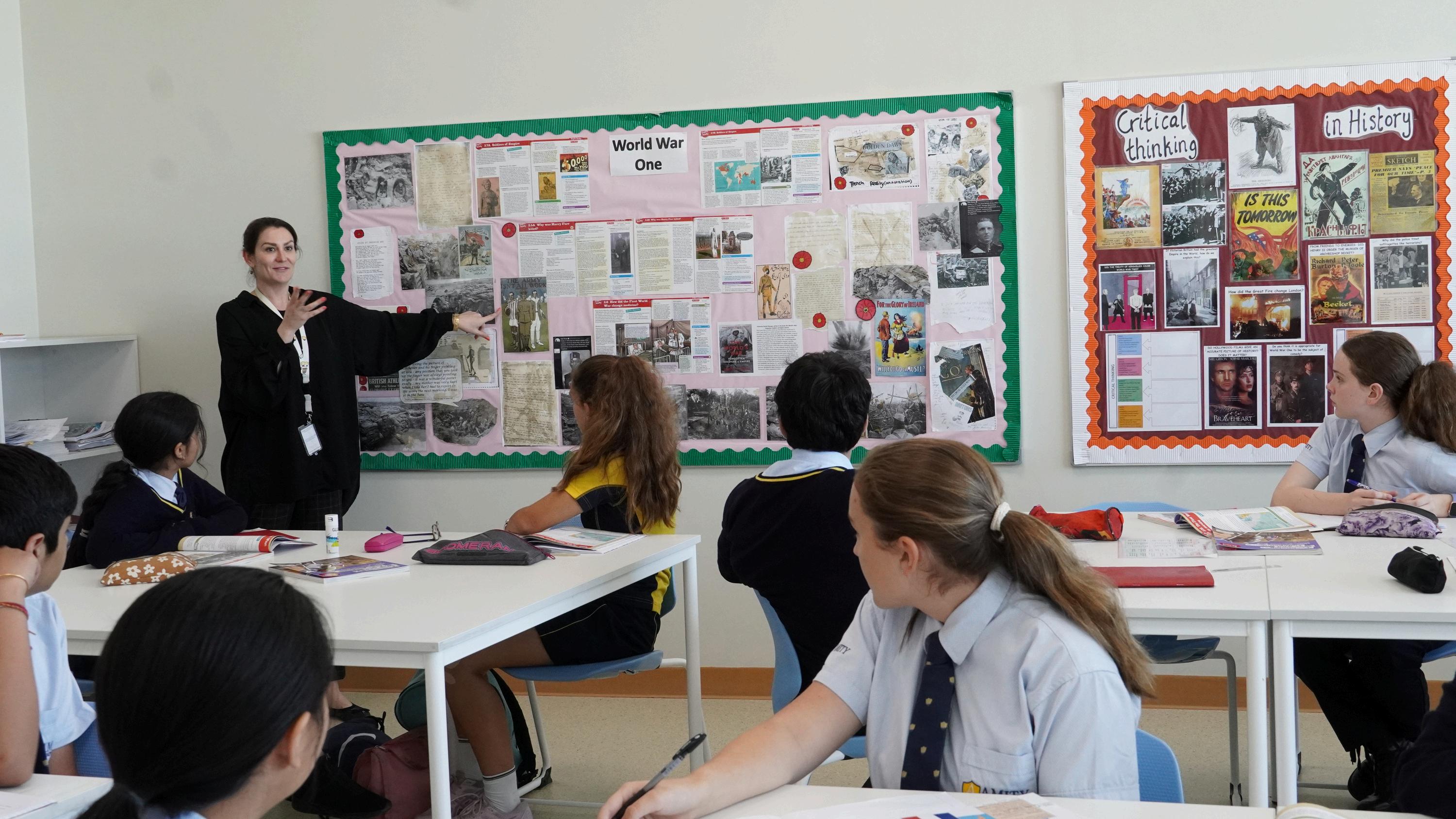

EXAM BOARD: HISTORY
SPECIFICATION CODE: 4HI1
SPECIFICATION LINK
“FOR ME HISTORY IS A REALLY INTERESTING SUBJECT AND LEARNING ABOUT THE PAST IS FUN! UNDERSTANDING EVENTS FROM HISTORY IS IMPORTANT AS YOU CAN SEE PARALLELS WITH EVENTS TODAY, AND IT IS SO INTERESTING TO DISCOVER WHAT PEOPLE IN THE PAST EXPERIENCED COMPARED TO OUR LIVES TODAY” - KAMILLA, Y11
theystudyabroadanddiverserangeofpeopleandplaces, theyareprovidedwiththeopportunitytodebateandexplore issuesandevents, thechosencoursesareglobalinoutlook Historianscan: selectandorganiselargeamountsofinformation, explaincausesandconsequences, recognisechanges,linksandpatterns, interpretsourcesandanalysetheirsignificance. YouwillbechoosingaGCSEsubjectthat: isveryhighlyregardedbycolleges,universitiesandemployers developsyouranalytical,evaluativeandcriticalskills Theseskillswillmakeyouaneffectivehistorianandwillalsoequip post-16opportunities.
Reasons for the Cold War; Early developments in the Cold War 1945-49; The C 1950s; Three Crises Berlin, Cuba and Czechoslovakia; The Thaw and moves tow 1963-72
www.bl.co.uk/world-war-one Cold War International History Project | Wilson Center www.historyhit.com
Numerous books, documentaries, TV shows and even Hollywood films have been made on the topics studied – Frost/Nixon, 1917, Warhorse, Bridge of Spies, Selma, Breaking the Mould, Radioactive the list goes on and on! Of course we need to be aware of the accuracy and possible bias in such source material but the wealth of easy to access (and enjoyable to watch) resources available help to enrich students understanding of key historical events.

EXAM BOARD: CAMBRIDGE
SPECIFICATION CODE: 0983
SPECIFICATION LINK
“ICT IS CRUCIAL FOR THE FUTURE AND THE SKILLS THAT COME WITH IT WILL GUARANTEE THAT YOU ARE PREPARED FOR WHATEVER JOB YOU CHOOSE TO DO” - MARIA, Y11
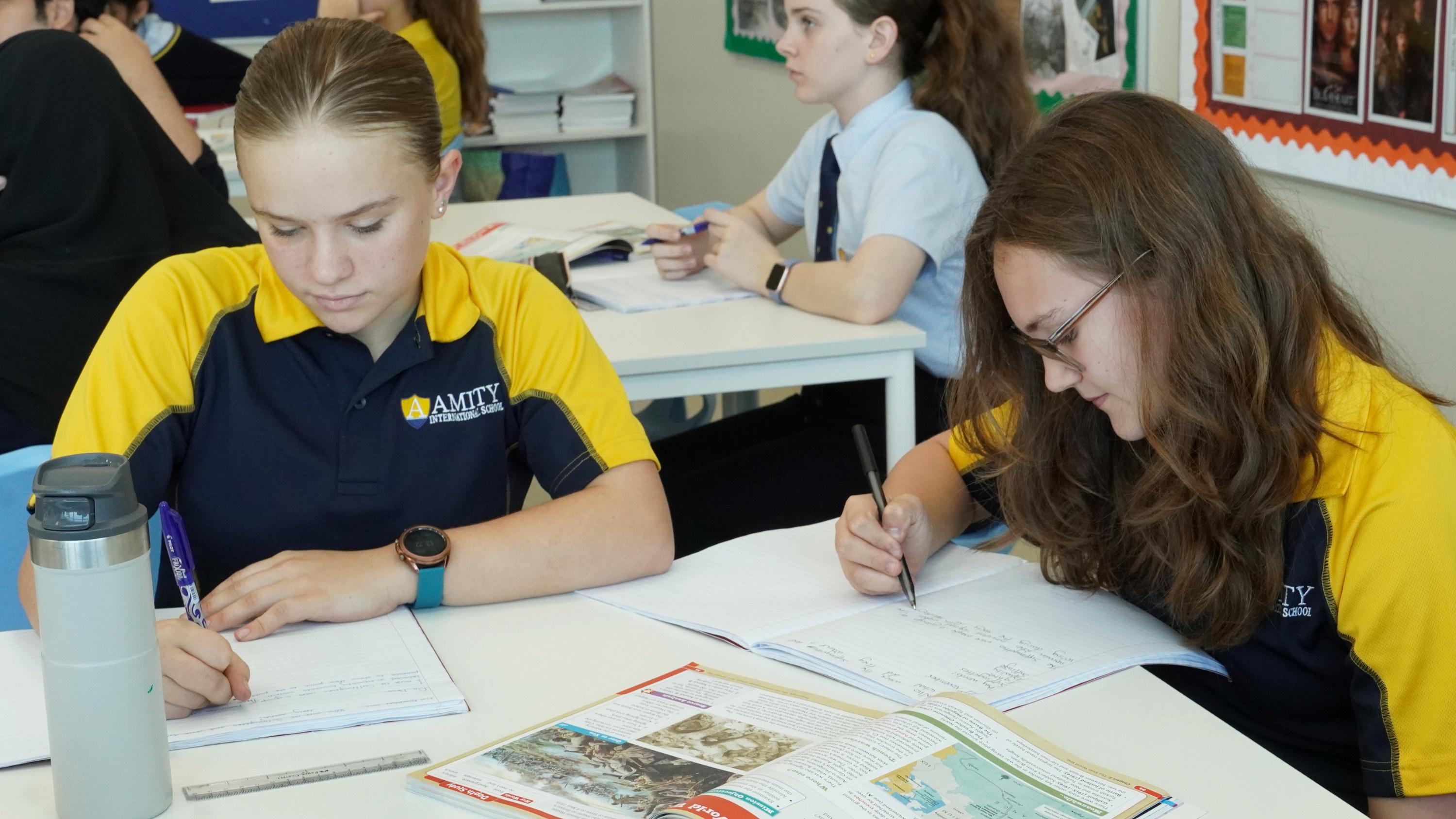

EXAM BOARD: PEARSON EDEXCEL
SPECIFICATION CODE: 4MA1
SPECIFICATION LINK
“MATHS TEACHES PROBLEM SOLVING SKILLS THAT YOU CAN APPLY TO SO MANY SITUATIONS” – MOHAMMED, Y13
Two written examinations are taken at the end of Year 11, each examination is two hours long and worth 50% of the final mark.
Usearangeofstatisticaltechniques. Usebasicideasofprobability.
Werecommendusingthewww.drfrostmaths.comwebsite,towhic InternationalSchoolstudentshaveaccess. ThecalculatorrecommendedistheCasioFX-991series.
InYear10:TheCorematerialthatisneededforasolidfoundation coveredbyall,andsometopicswillbestretchedtocovertopicsre
InYear11:StudentswillcompletetheIGCSEcourseincludingthe grade9,andpreparefortheexaminationsinJune.Amockexamin yearandallstudentswillundertakeextensivePastPaperrevision studentswillembarkonthebeginningsoftheALevelcourse Alls GCSEattheendofYear11.
Tipsforparentstohelpwiththeirchild’sstudy Practice,practice,practice!Continuousrevisionisthevitaltosucce havesubscribedtoexcellentwebsites,inparticulardrfrostmaths.c getsupportandfurtherpracticefromtherewithparentalencoura
MathematicsIGCSEgradeishighlyvaluedbyallemployersandMa consideredtobeverydesirablebyalluniversityacademicfaculties isaverychallengingcourseandaminimumofaGradeAatIGCSE expectedforfurtherstudies.
Somestudents,whoareontracktoachieveGrade8or9atiGCSE abletosittheexamattheendofYear10.Thiswillthengivethem opportunitytostudyforanextra,iGCSEFurtherPureMathematic 11.ThecontentisagreatwaytointroducesomeALevelconcepts fromiGCSEMathematicstoALevel.
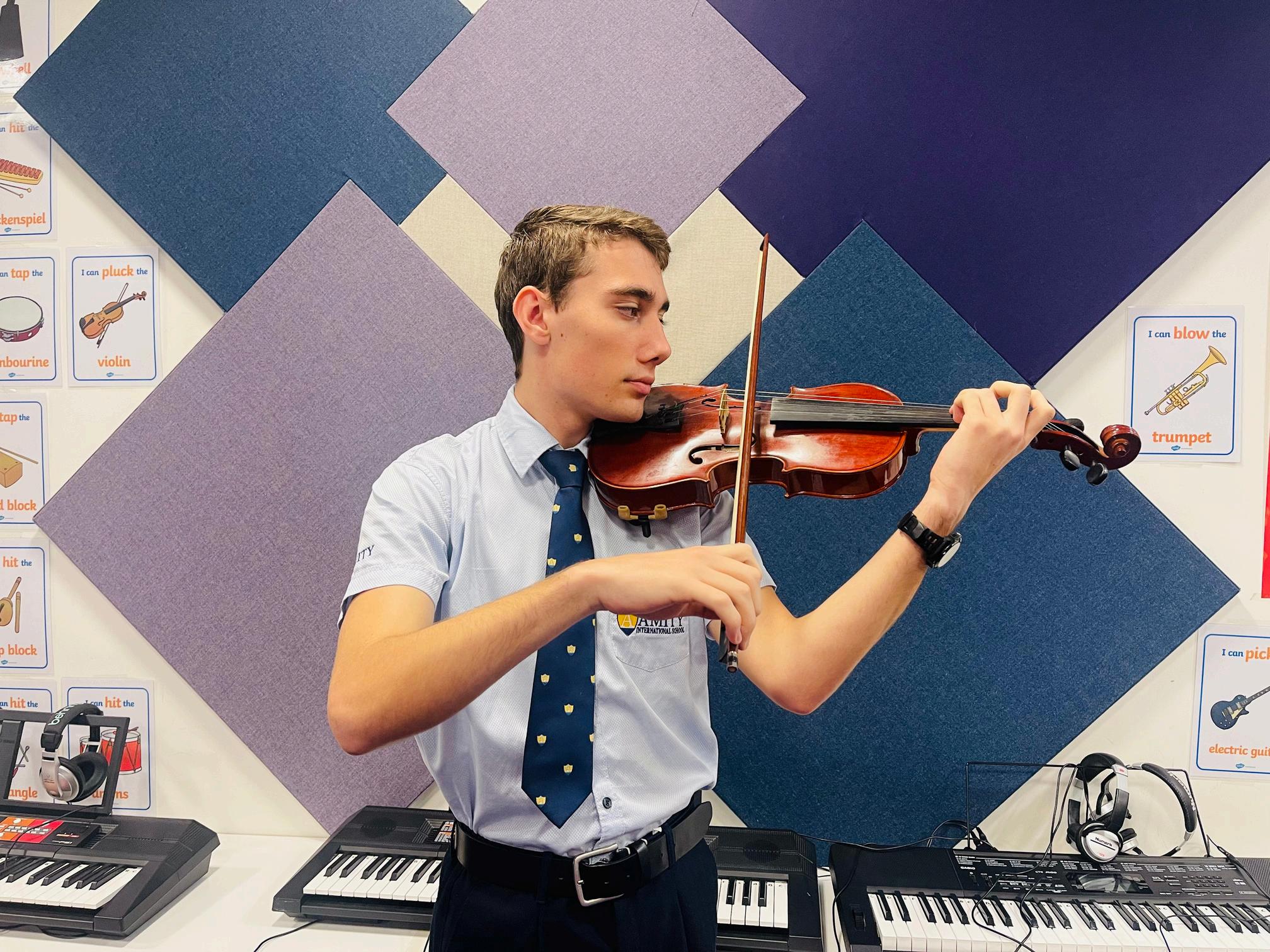

EXAM BOARD: CAMBRIDGE
SPECIFICATION CODE: 0978
SPECIFICATION LINK
“MUSIC IS A SUBJECT WHERE YOU CAN LET EVERYTHING OUT – IT IS A WORLD WHERE YOU CAN BE FREE” - SAMI, Y11
focus – musical elements, musical contexts and musical language a examples of how these are used within different types of music. By including Baroque, Classical, Romantic, 20th Century, Music and W Music for Small Ensemble and Music for Stage and Screen, studen understanding of subject knowledge by investigating, analysing an genres of music and its features by using practical methods.
The course also aims to expose students to a diverse musical herit learn to perform, compose and appreciate different types of music creative thinking, cultural, aesthetic and emotional awareness, and music individually and as part of a group. It is an exciting opportun on their current skills base, and to pursue a subject which they tru To take this course, you must be able to offer at least one instrum must be at least Grade 3 level when you select your IGCSE options
You will record one solo piece which can be in any style or genre, with or without accompaniment as appropriate to the style of music. You will also record a piece as part of an ensemble performance. The combined minimum duration of the two performances is a minimum of four minutes.
In this unit you will develop your musical ideas in the form of compositions. You must submit two compositions: one free composition and one in response to a brief set by the exam board. The exam briefs will relate to a selection of the seven areas of study from which you will select one. Each composition must be at least one minute in length and the combined duration must be at least three minutes. Each composition must be submitted as a traditionally notated score or a detailed written account and a recording (which can be produced electronically).
Tips for parents to help with their child’s study
It would be useful to revise some general music theory topics. The website www musictheory net provides an excellent online resource In addition, Terry, Paul ‘Step up to IGCSE Music’ Neville, Colin. Rhinegold, 2016 is highly recommended as accessible and manageable but comprehensive preparation for starting the course. The importance of instrumental/singing practice is paramount to success on the performance part of the IGCSE. All IGCSE candidates are expected to participate in music ensembles and CCA’s at school.
The natural progression from the IGCSE Music will be to the A Level. This will enable students to apply for a related degree at University or go directly into employment if they wish to do so. After University the list of possible careers available to each student will be extensive and diverse. IGCSE Music is a stepping stone to many careers which include performer, composer, sound engineer, producer, manager and teacher. It also nurtures and key skills such as creativity, communication, analysis and critical thinking. This course demonstrates skills and commitment that are highly valued and is recognised by both universities and employers.
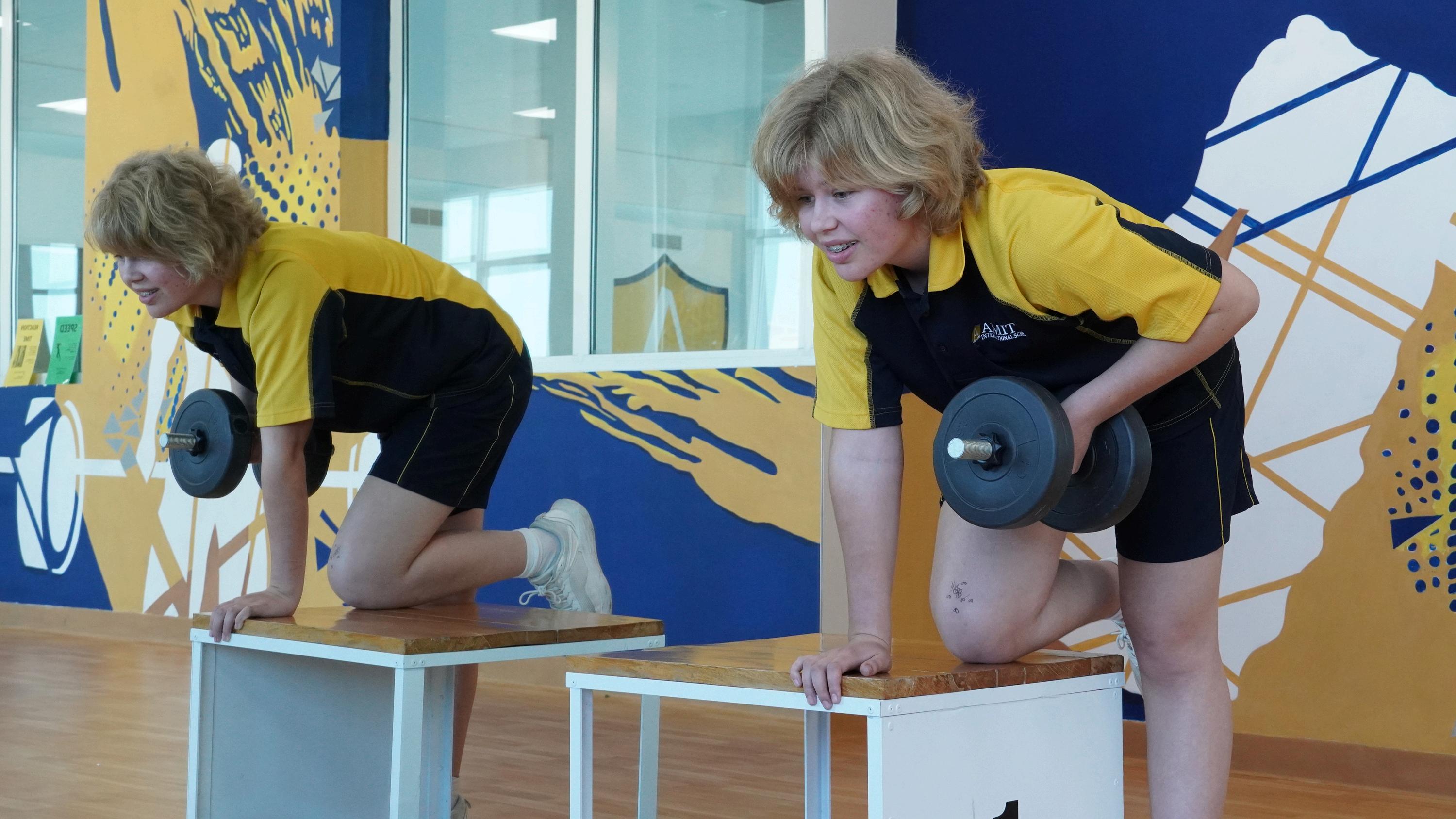

EXAM BOARD: CAMBRIDGE
SPECIFICATION CODE: 0955
SPECIFICATION LINK
“ACADEMIC PE HELPS ME UNDERSTAND HOW THE BODY REACTS TO EXERCISE, AND IT HELPS US LEARN HOW TO TRAIN EFFECTIVELY AND KEEP FIT” - ADI, Y11
2 Coursework: undertake 4 physical activities; internally assessed / externally moderated
In Year 10, you will study a range of practical activities as well as le such as the musculo-skeletal system, the cardio-respiratory system and training methods.
In Year 11, you will carry on with your range of practical activities mentioned and learn about a diverse arrange of topics such as the sport, sports psychology sporting ethics. Towards the end of the y towards exam preparation.
Tips for parents to help with their child’s study:
encourage your child to participate in a variety of sporting CCA
encourage your child to participate in a variety of sporting act hours,
encourage students to complete past papers. Many examinatio on the CIE website for extra practice,
encourage your child to go to the BBC Bitesize website for a fu of learning.
Employment opportunities in sports, marketing, education, busines medicine (sports), physiotherapy and more.
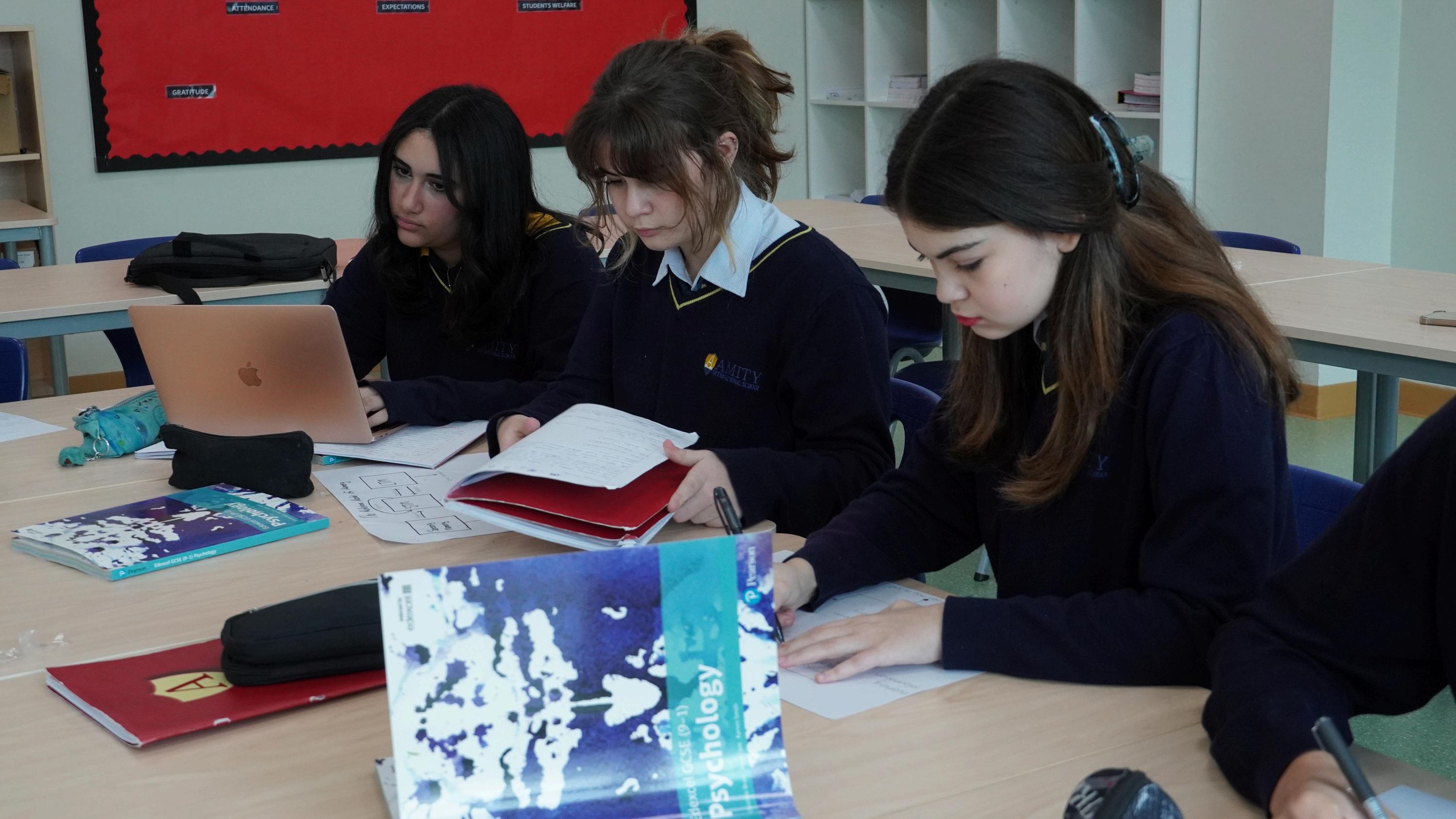

EXAM BOARD: PEARSON EDEXCEL
SPECIFICATION CODE: 1PS0
SPECIFICATION LINK
"PSYCHOLOGY IS SO INTERESTING BECAUSE YOU LEARN ABOUT THINGS THAT OCCUR IN EVERYDAY LIFE AND UNDERSTAND WHY THEY HAPPEN –THIS IS ALWAYS EXCITING!” - LUCIA, Y12
Development, Memory, Psychological Problems, Brain and Neuropsychology and Social influence
Criminal psychology, Sleep and Dreaming, and Research methods
Clinical psychologist
·Educational Psychologist
·Psychology Teacher
·Researcher
·Counsellor/Therapist
Occupational Therapist
Topic2:Memory–Howdoesyourmemorywork?
Topic3:Psychologicalproblems–Howwouldpsychologicalproble
Topic4:Thebrainandneuropsychology–Howdoesyourbrainaff
Topic5:Socialinfluence–Howdoothersaffectyou?
Topic11:Researchmethods–Howdoyoucarryoutpsychologica
OptionalTopics–Studentsmuststudyatleasttwoofthetopic
Topic6:Criminalpsychology–Whydopeoplebecomecriminals?
Topic7:Theself–Whatmakesyouwhoyouare?
Topic8:Perception–Howdoyouinterprettheworldaroundyou?
Topic9:Sleepanddreaming–Whydoyouneedtosleepanddrea
Topic10:Language,thoughtandcommunication–Howdoyouco others?
Studentswillusearangeofsubjectspecifictextbooksregularlyin providedbytheschool.
ThenaturalprogressionfromtheGCSEwillbetotheALevelorIB enablestudentstoapplyforarelatedornon-relatesdegreesatUn intoemployment.AfterUniversitythelistofpossiblecareersavail beextensiveanddiverse.Someexamples:
·Marketing
·Human Resources
·Data Analysis
·Journalist
·Police officer
Government Worker
who choose this option are likely to be those who would benefit fro one or more core subjects as well as a slightly reduced timetable o
Tutors, Heads of Houses, and the Academic Team will be able to a suitability for choosing this option on an individual basis. We may to some pupils for particular consideration as part of our on-going and the support we can offer.



EXAM BOARD: OXFORD AQA
SPECIFICATION CODE: 9203
SPECIFICATION LINK
“I LOVE LEARNING ABOUT ALL THE DIFFERENT AND INTERESTING PHENOMENA IN OUR UNIVERSE THAT WE USUALLY DON’T REALIZE EXIST. FOR EXAMPLE, HOW LIGHT COMES IN WAVES AND THAT IT TAKES ABOUT 8 MINUTES FOR LIGHT FROM THE SUN TO REACH EARTH. IT’S ALSO REALLY FUN TO BE ABLE TO CALCULATE THE IMPACT SOMETHING HAS OR TO KNOW HOW ELECTRICITY WORKS!” LIESE, Y11
techniques of classical Physics and is the basis for studying A Leve general background for those wanting to specialise in one or more science-based university courses.
A Level Physics expands on the classical Physics learned at GCSE a to Quantum Physics, Engineering and Astronomy. An A Level in Ph any university courses in Physics or Engineering and is very helpfu based courses and, as it is considered a high-level, academic, probl beneficial for many other courses e.g. Economics.

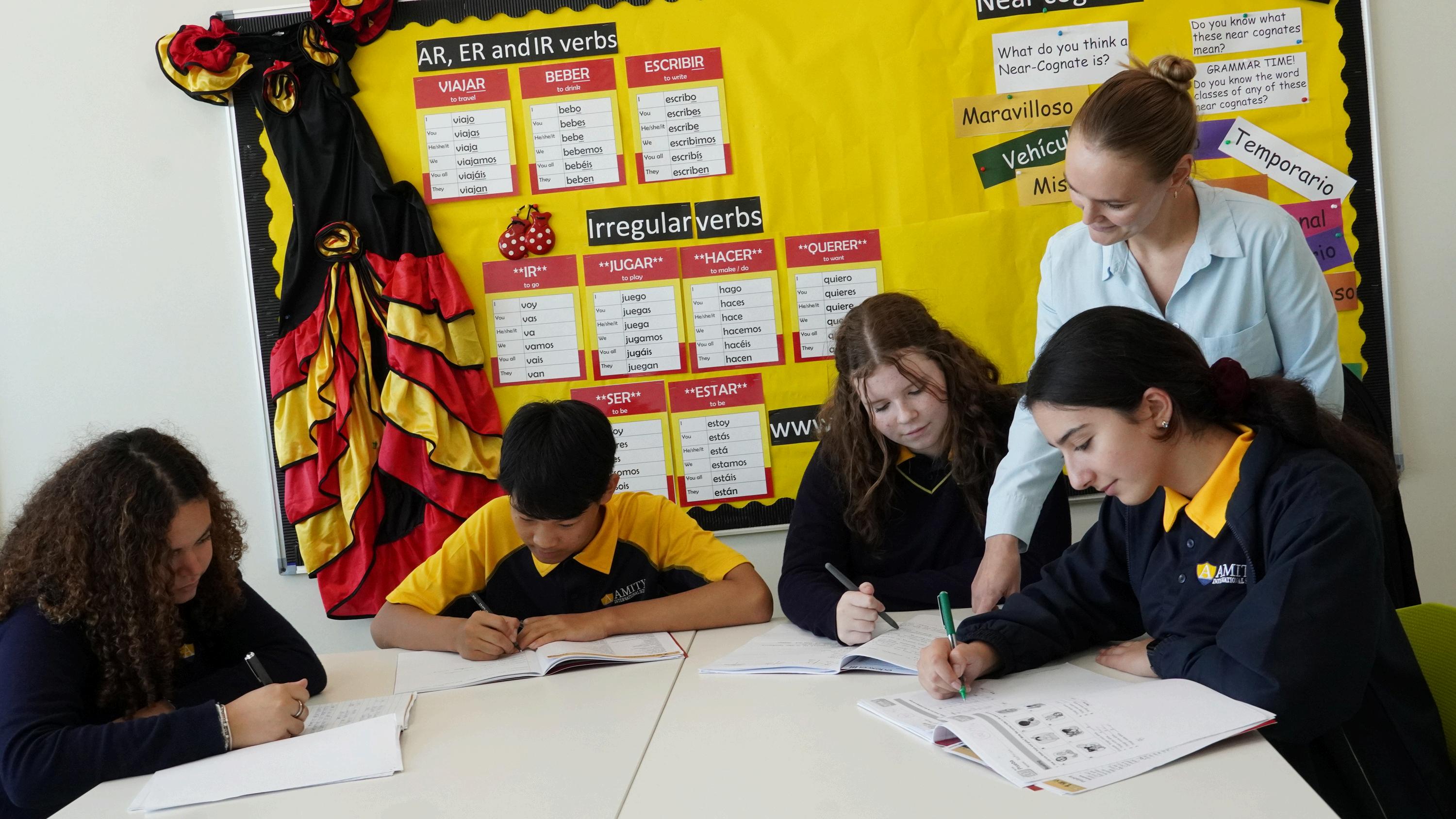

EXAM BOARD: PEARSON EDEXCEL
SPECIFICATION CODE: 4SP1
SPECIFICATION LINK
GRADED: 9-1
“SPANISH IS A VERY ENJOYABLE SUBJECT BECAUSE YOU CAN DISCOVER AND EXPLORE THE BEAUTIFUL LANGUAGE AND CULTURE WITH AN ADVANCED UNDERSTANDING” - SALMA, Y11
The department provides an exam board endorsed textbook in add other resources. A small English-Spanish / Spanish-English diction home use. Students are encouraged to use internet resources in or Writing and Speaking work and to enhance their Reading and Liste
Many websites are available for students to use independently and sites such as YouTube offer a huge range of language learning res paid apps are also available. The following are recommended for bu vocabulary:
www.wordreference.com (An online dictionary)
www.funwithlanguages.vacau.com (a vast range of interactive practise GCSE vocabulary & grammar)
www.languagesonline.org.uk/ (for vocabulary & grammar prac
www.bbc.co.uk/languages/spanish (Spanish practice from the wwwlanguageguideorg/spanish/vocabulary (for vocabulary le
www.aqa.org.uk (The AQA examination board also offers past examination advice for GCSE Spanish)
Tipsforparentstohelpwiththeirchild’sstudy
Little and often is best…Spanish is not a subject that a studen before the examination. 15-20 minutes at a time is best. Students need to spend regular amounts of time familiarising core vocabulary from the exam board, using word lists and spe Encourage students to complete specimen papers For extra p also access a range of past/specimen papers from other Board
Download any useful apps you can find.
Watch favourite DVDs or Netflix with Spanish subtitles or dub


